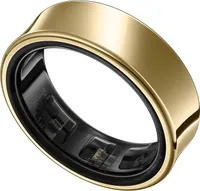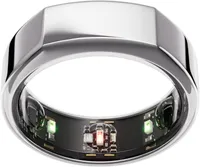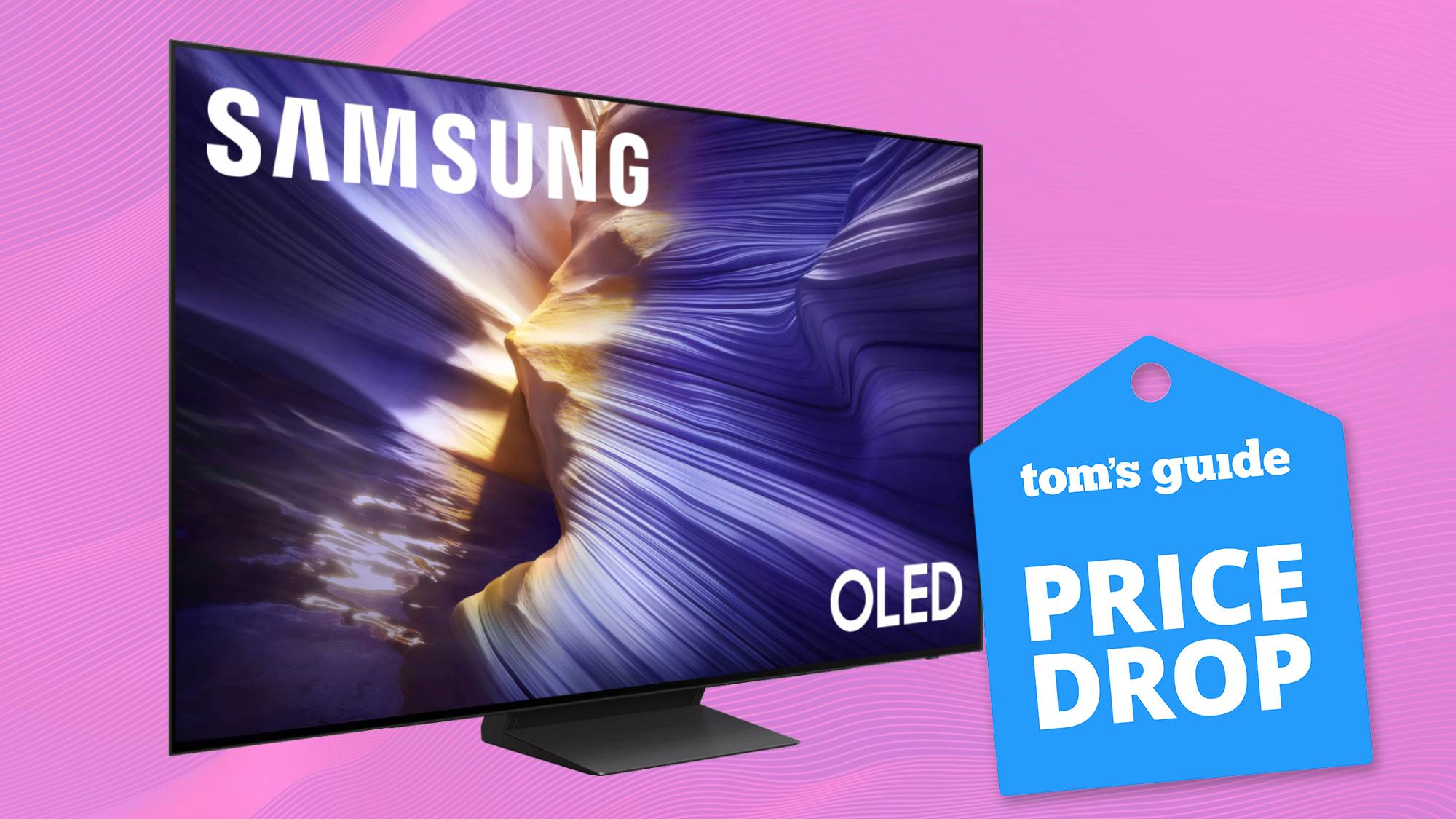The best sleep trackers 2026: Reviewed and ranked by sleep tech experts
Our testing team went to bed with the best sleep trackers from Oura, Garmin, Withings and more — these are the 5 we truly recommend
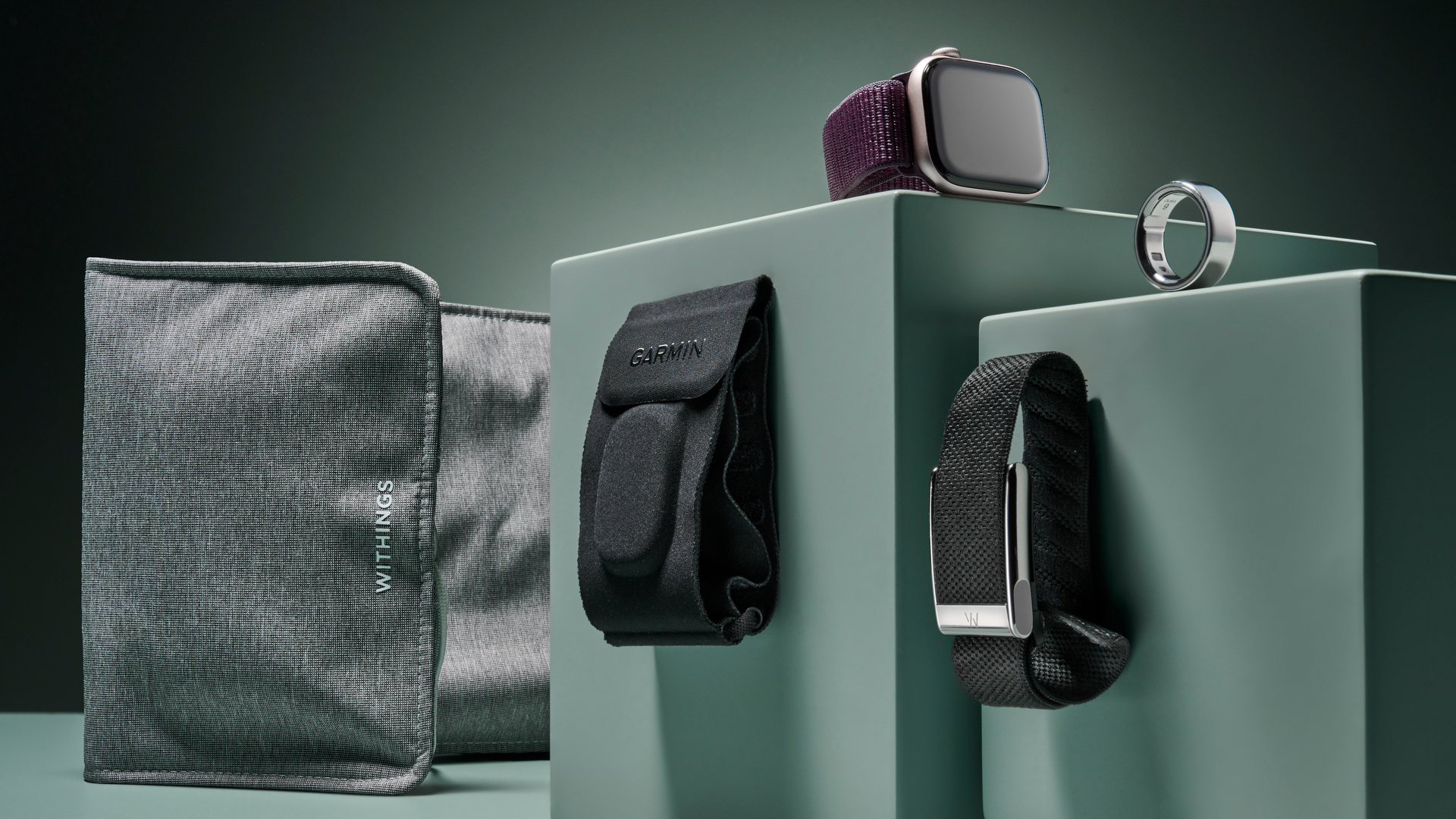
Here at Tom’s Guide our expert editors are committed to bringing you the best news, reviews and guides to help you stay informed and ahead of the curve!
You are now subscribed
Your newsletter sign-up was successful
Want to add more newsletters?

Daily (Mon-Sun)
Tom's Guide Daily
Sign up to get the latest updates on all of your favorite content! From cutting-edge tech news and the hottest streaming buzz to unbeatable deals on the best products and in-depth reviews, we’ve got you covered.

Weekly on Thursday
Tom's AI Guide
Be AI savvy with your weekly newsletter summing up all the biggest AI news you need to know. Plus, analysis from our AI editor and tips on how to use the latest AI tools!

Weekly on Friday
Tom's iGuide
Unlock the vast world of Apple news straight to your inbox. With coverage on everything from exciting product launches to essential software updates, this is your go-to source for the latest updates on all the best Apple content.

Weekly on Monday
Tom's Streaming Guide
Our weekly newsletter is expertly crafted to immerse you in the world of streaming. Stay updated on the latest releases and our top recommendations across your favorite streaming platforms.
Join the club
Get full access to premium articles, exclusive features and a growing list of member rewards.
Looking to get a watch on your sleep health this new year? You've come to the right place. I spent the best part of 2025 reviewing the best sleep trackers on the market from top tech brands including Apple, Garmin, Oura, Whoop and Withings.
Many hours of testing, data analysis and, well, sleeping later, I've found which ones can a) reliably track your sleep and b) actually guide you towards better quality rest. So, I come armed with sleep trackers (literally, I've gone to bed wearing three at a time) and recommendations for every budget and sleep need.
The best tracker for you will be comfortable to wear overnight, will keep tabs on the metrics that matter most to you, whether you're concerned about sleep apnea or looking to level up your athletic performance.
Be you looking for a 24/7 health monitor, dedicated sleep device or discreet wearable-free tracker, there's a gadget here for you here, tested under our rigorous sleep tracker review methodology.
Best overall sleep tracker
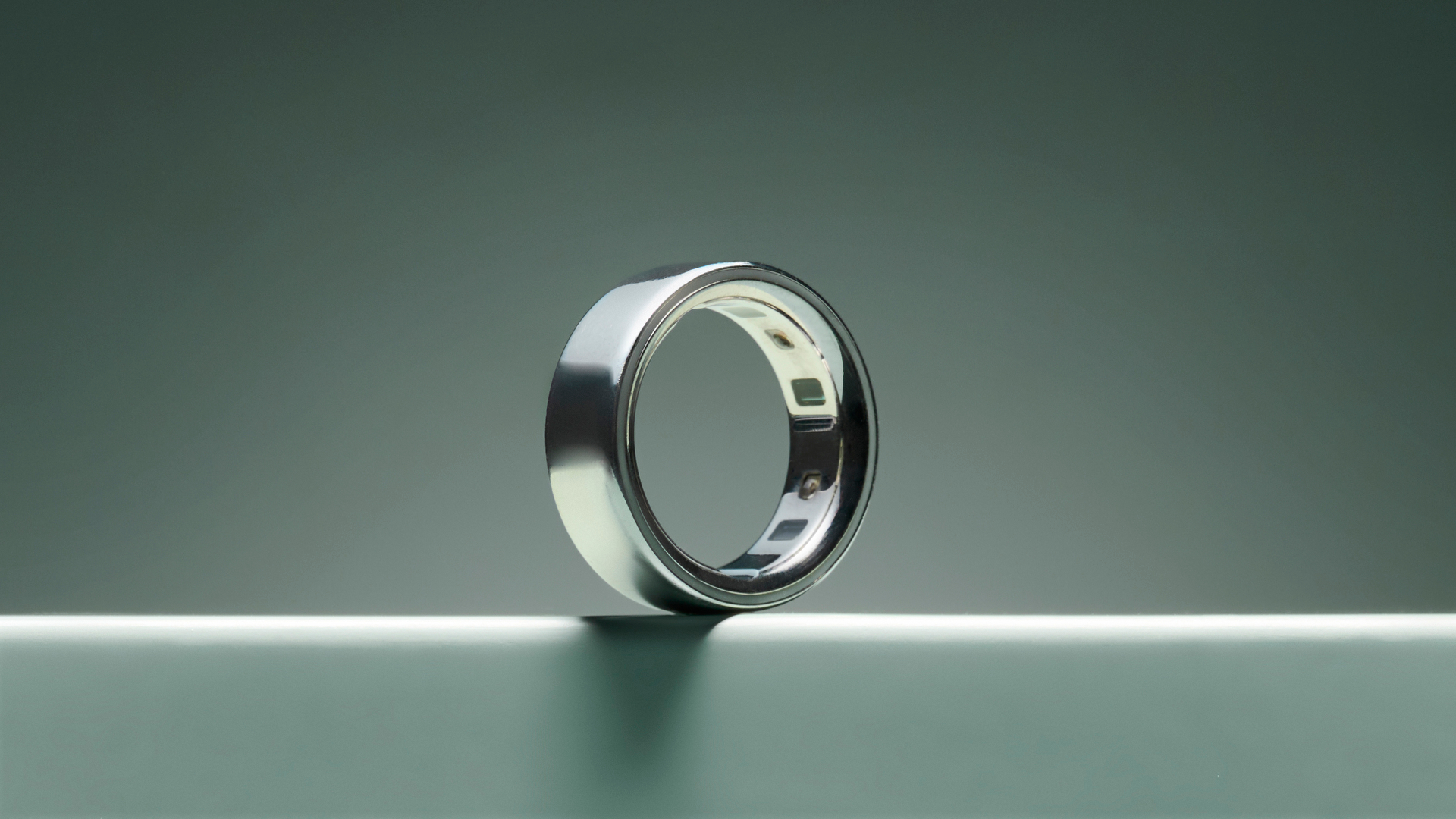
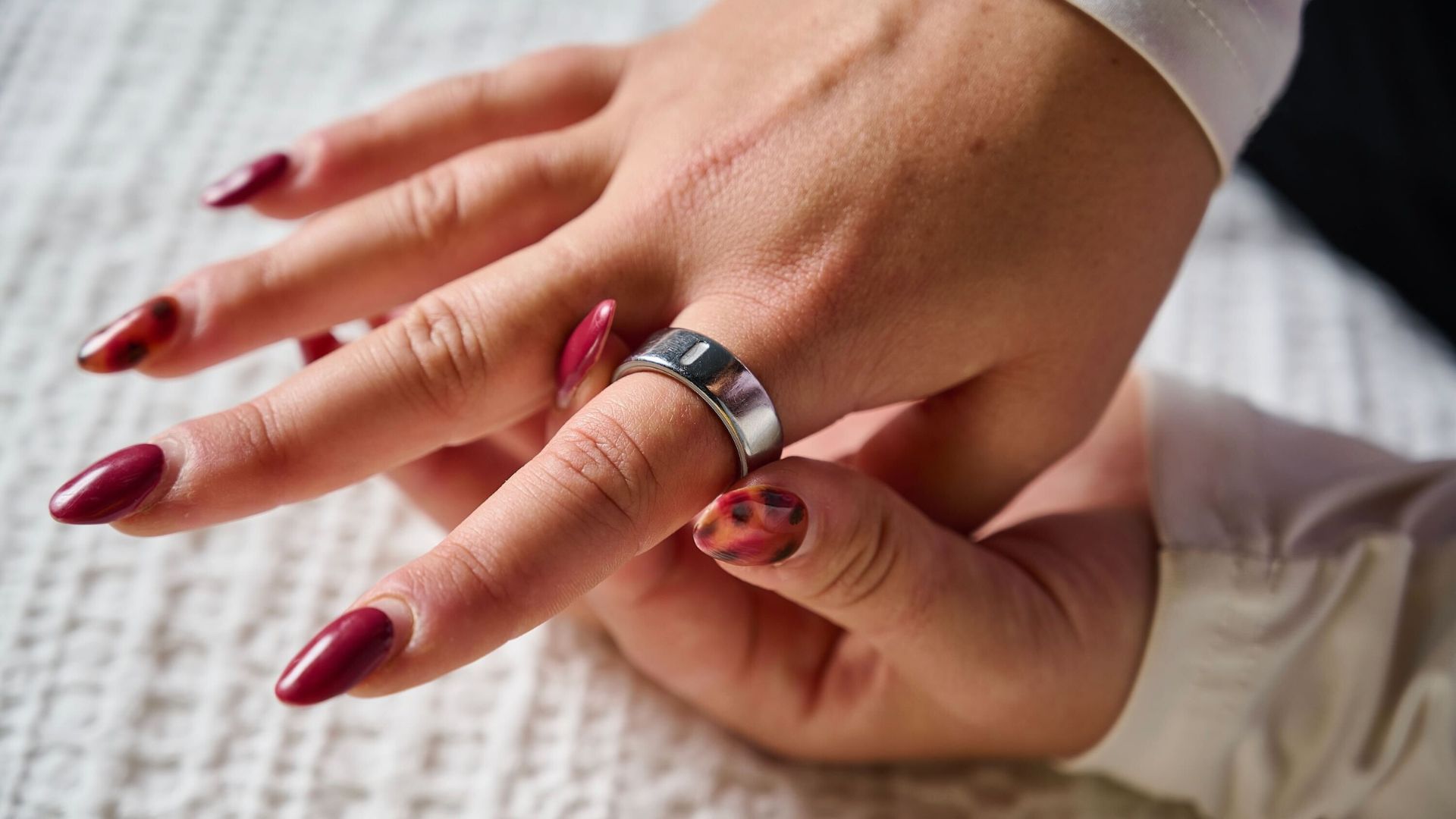
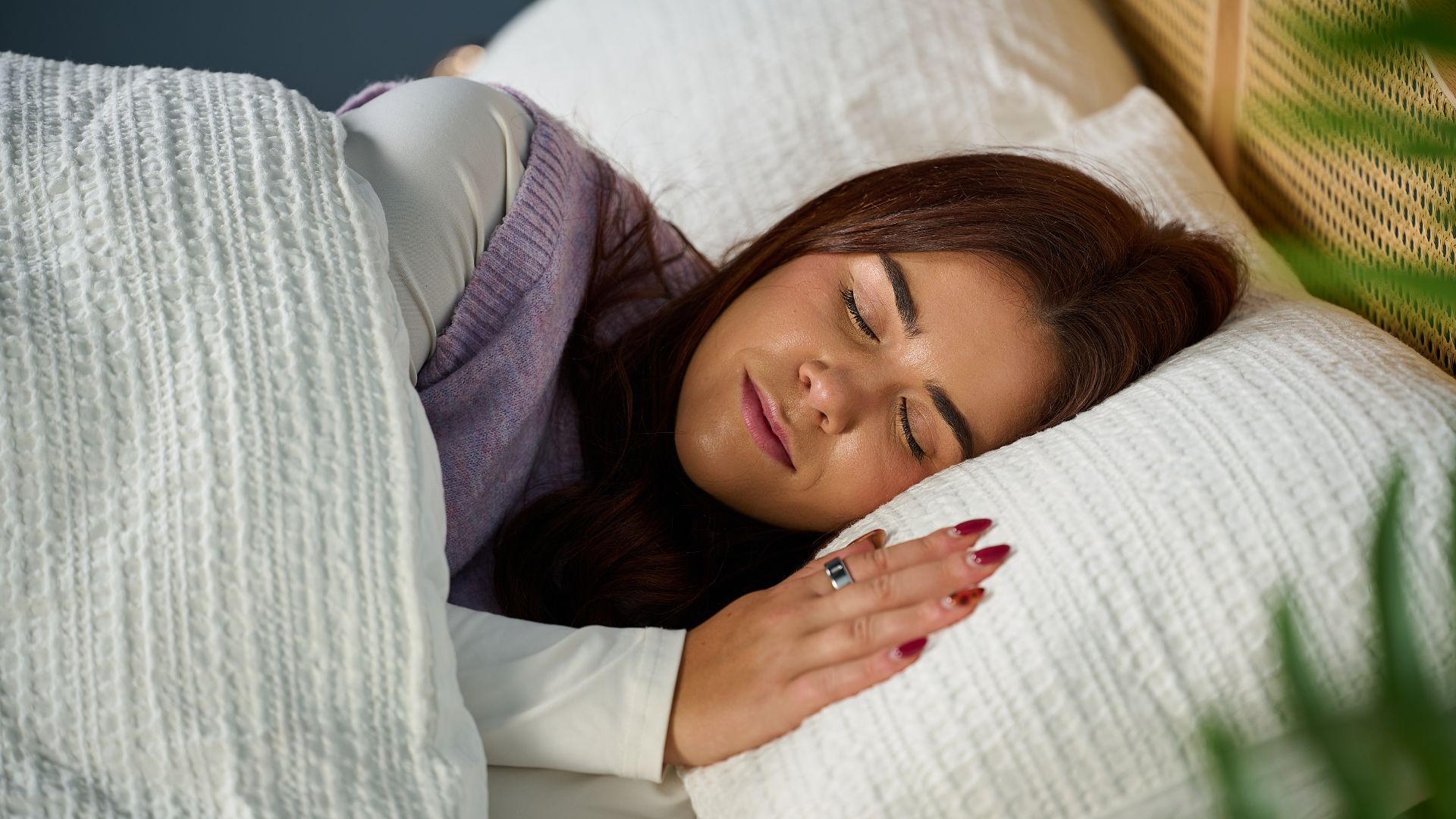
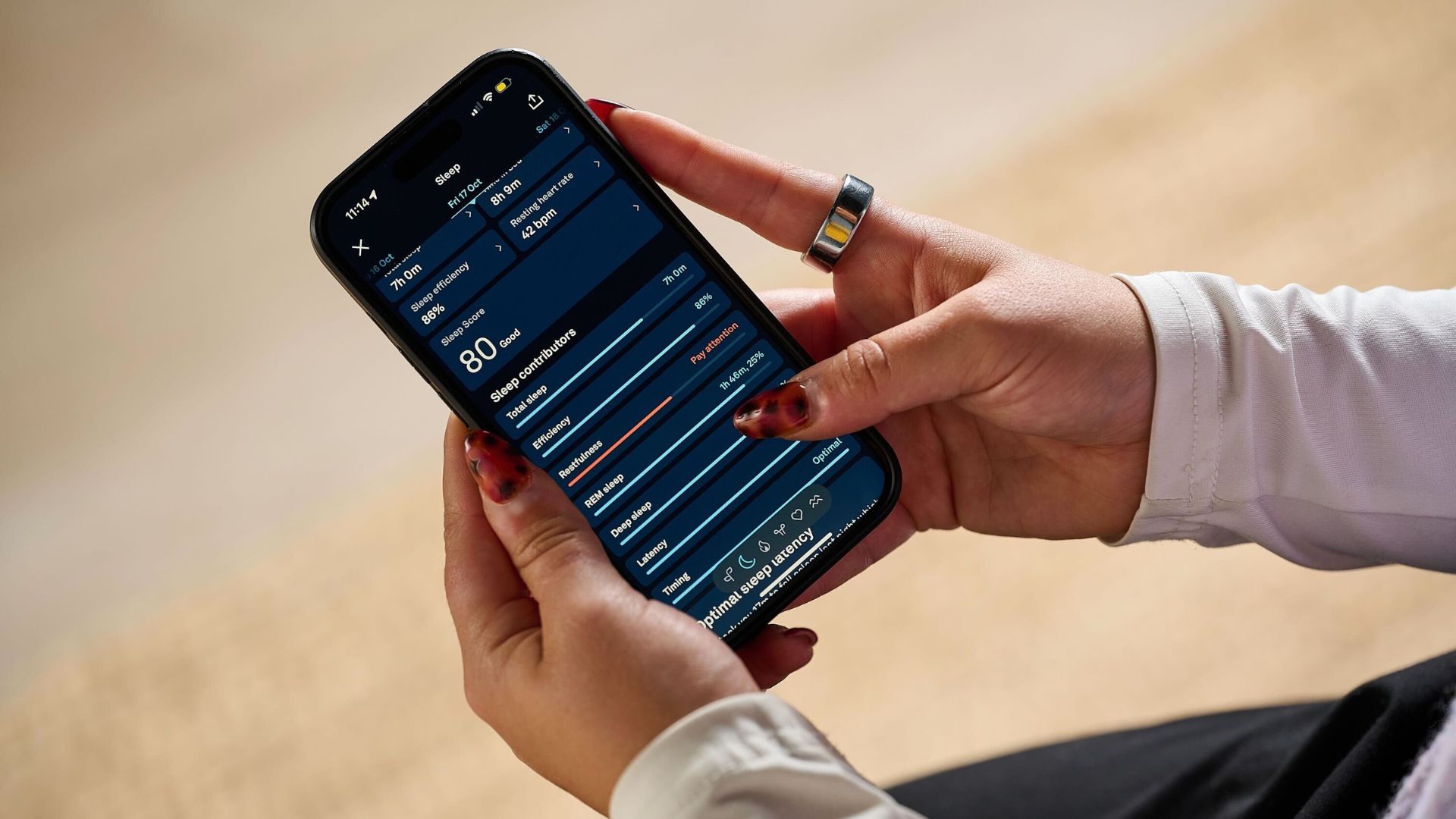
Specifications
Reasons to buy
Reasons to avoid
After careful analysis and many hours spent, well, sleeping, one sleep tracker emerged as the clear winner: the Oura Ring 4. In my view, it's the best sleep tracker you can buy online right now. Released in October 2024, it's an upgrade on the Oura Ring 3 with more accurate sensors, smarter algorithms and more robust materials. A year on, it's still the favorite smart ring among Tom's Guide's panel of health tracker testers.
✅ You want the very best sleep tracker: If the steep price doesn't put you off, you're guaranteed accurate sleep data and useful sleep coaching with Oura.
✅ You'd benefit from sleep coaching: Oura delivers actionable sleep tips alongside your daily sleep scores and metrics, and you can get more personalized sleep advice with the Oura Advisor live chat feature.
❌ You're on a budget: With a starting price of $349/£349, the Oura Ring 4 isn't exactly kind on the wallet and you also need a subscription to unlock all of its features.
Favoured by wellness enthusiasts and sleep experts, previous versions of the Oura Ring have been scientifically proven to line up with polysomnography testing. The brand's latest iteration, the Oura Ring 4, performed almost perfectly when I put it through its paces and compared its metrics to my own sleep diary.
It tracks everything from sleep latency and time spent in each essential sleep stage to time in bed vs total time asleep, restfulness, oxygen saturation, heart rate and heart rate variability (HRV.) It’s safe to say the ring is comprehensive.
One of the biggest upgrades over previous versions is its new Smart Sensing algorithm. It essentially makes the sensors smarter and more accurate, adapting to your finger to capture the most reliable sleep data.
Oura presents all of this data in a clear, user-friendly format, and summarizes your sleep quality with a daily 'Sleep' score and a 'Readiness' score (which indicates how ready you are for the day based on sleep and other factors), alongside advice on how to maximize your rest.
I found these scores to be very accurate. Testing the ring through summer meant I had a few sweaty, restless nights. The ring always detected any disturbances in my sleep, and lowered my scores accordingly. I suspect its redesigned, flattened sensors helped maintain better skin contact and comfort, even in the heat.
The Oura also offers other useful sleep-related features, like a Body Clock that shows your optimal sleep window, which it calculates using your chronotype. It calculates this using around 90 days of data, including your sleep patterns, average body temperature and activity. The Body Clock function is shown as a clock graph with your optimal sleep window and current sleep patterns, so you can easily compare the two.
Oura can also suggest an ideal bedtime based on your best historical sleep scores and lowest resting heart rate. This Bedtime Guidance feature will let you know when you're getting close to this ideal time to head to sleep. It can also then adjust dynamically as your rhythm changes.
It's comfortable to wear overnight and although Oura says the battery can last up to eight nights depending on ring size, I found it goes for around six nights on a single charge (not quite as good as Whoop, but still solid for a smart ring). If sleep sounds are your thing, you'll be glad to hear the Oura app holds a library of 26 sleep-inducing audio tracks too.
Perhaps the most valuable feature if you're struggling to sleep is the Oura Advisor. In the Oura Labs section of the app, you'll find this chatbot that combines health sensing algorithms with a large language model to analyze your data, answer questions and provide personalized, actionable advice to enhance your sleep and wellbeing.
When I asked Oura Advisor for tips based off my current sleep schedule and habits, here's the advice it gave me:
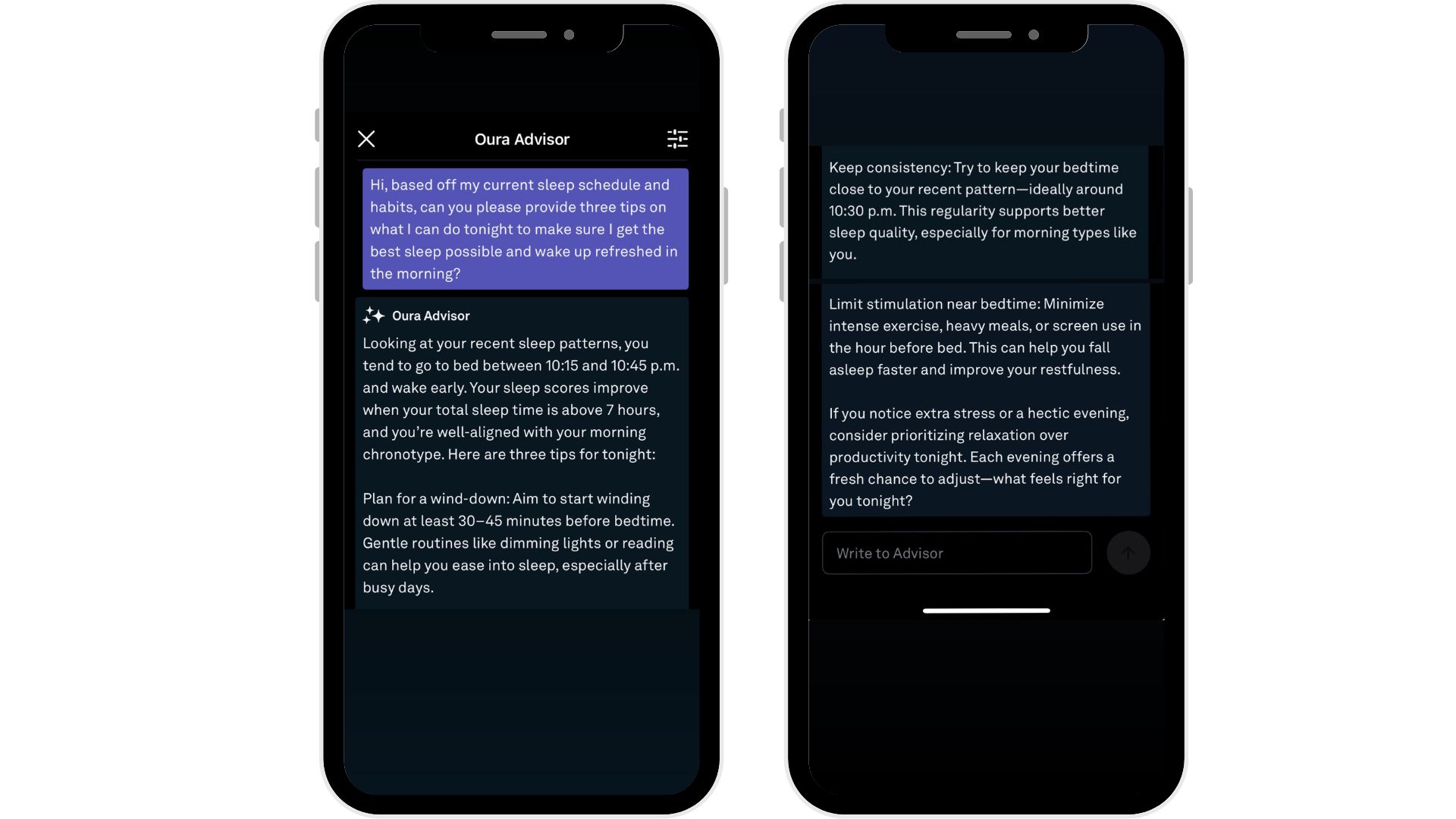
While the overall sleep experience with the Oura Ring 4 is miles ahead of its competitors, there's one major downside: the subscription.
You need to pay $5.99/£5.99 a month to access all the sleep data and features that Oura offers, which is a substantial ask when you've already paid at least $349/£349 for the hardware. That said, I'm willing to forego a coffee a month for accurate sleep tracking and coaching.
- Read more: Oura Ring 4 review
Best sleep tracking armband
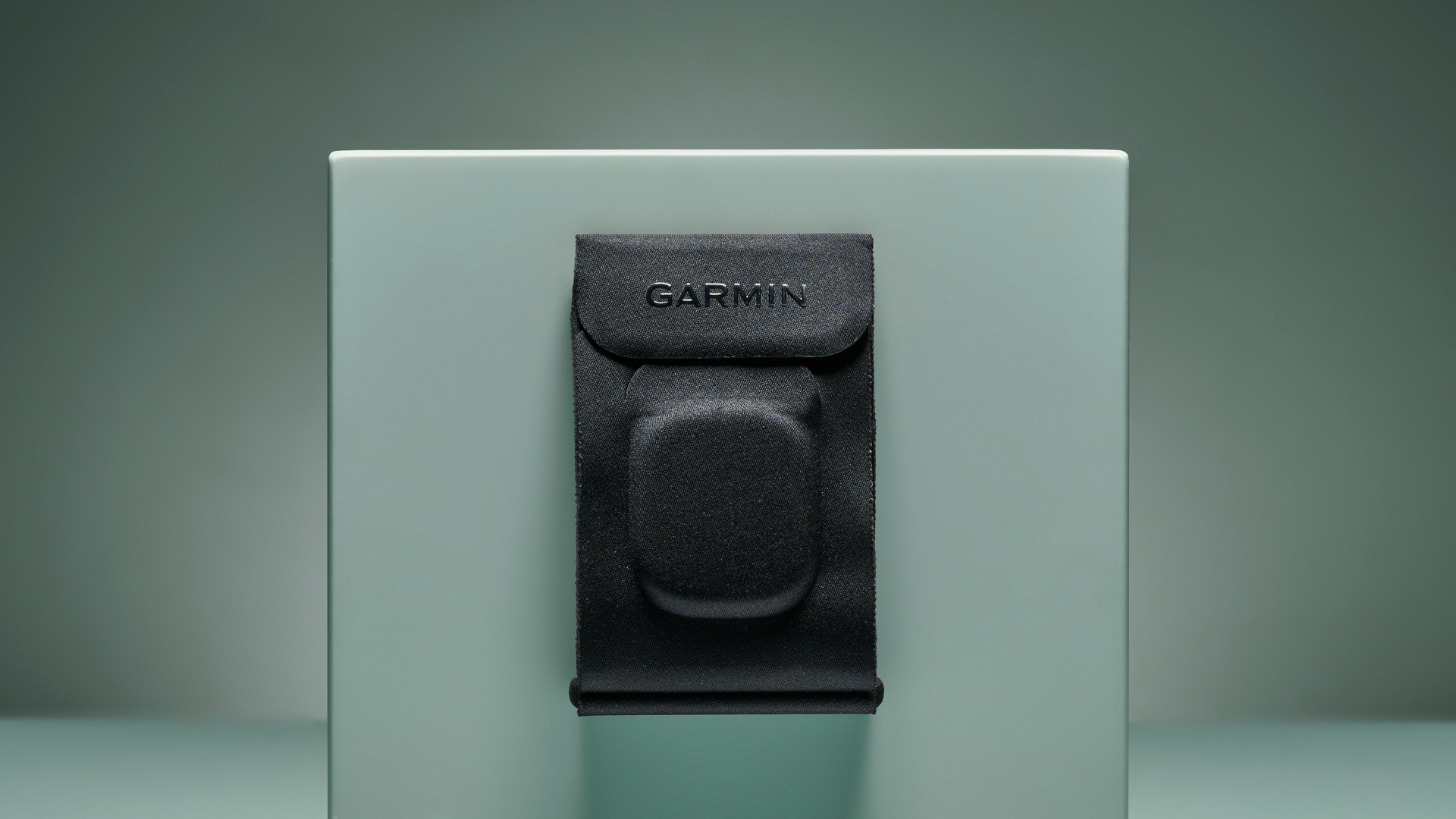
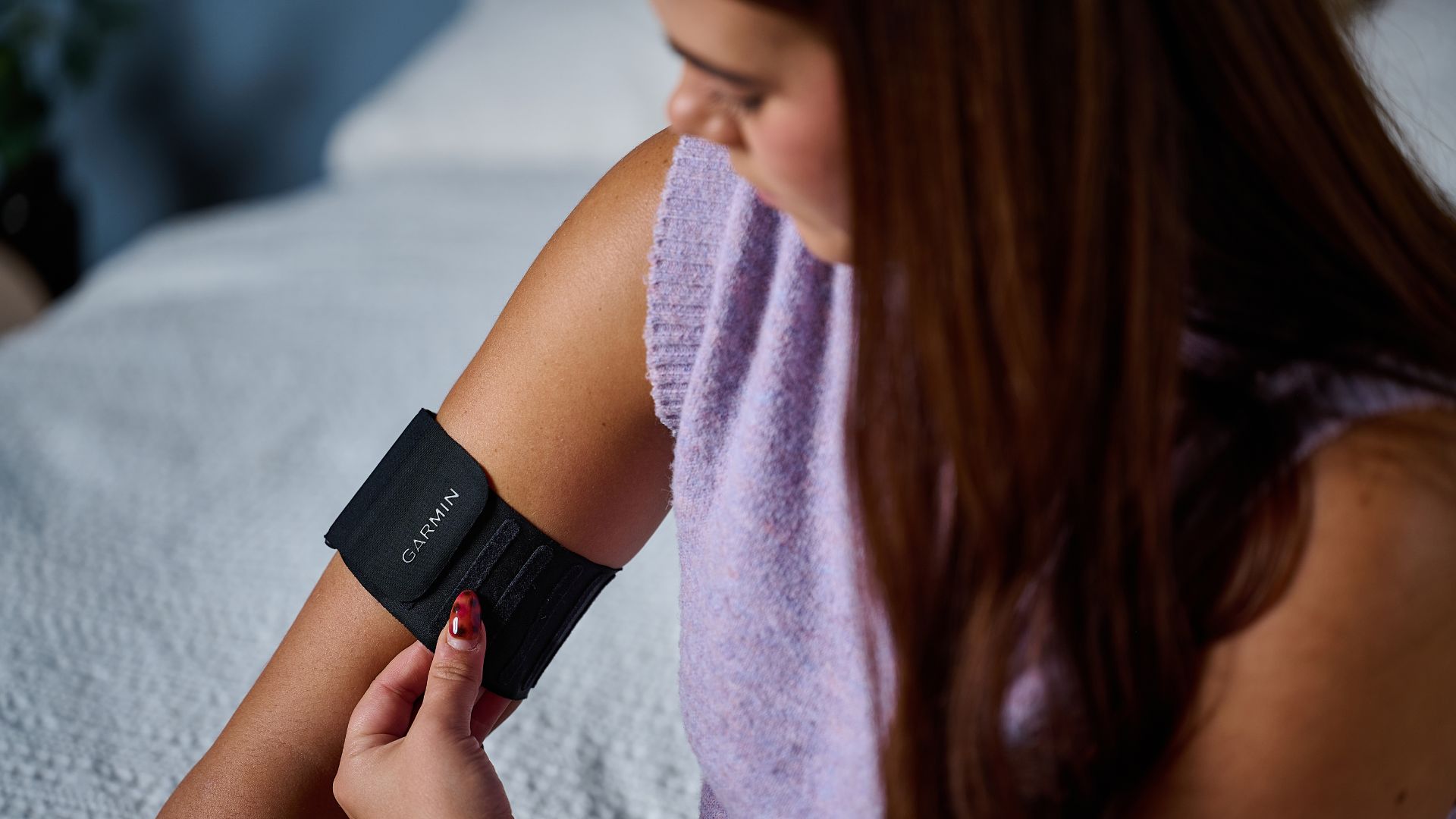
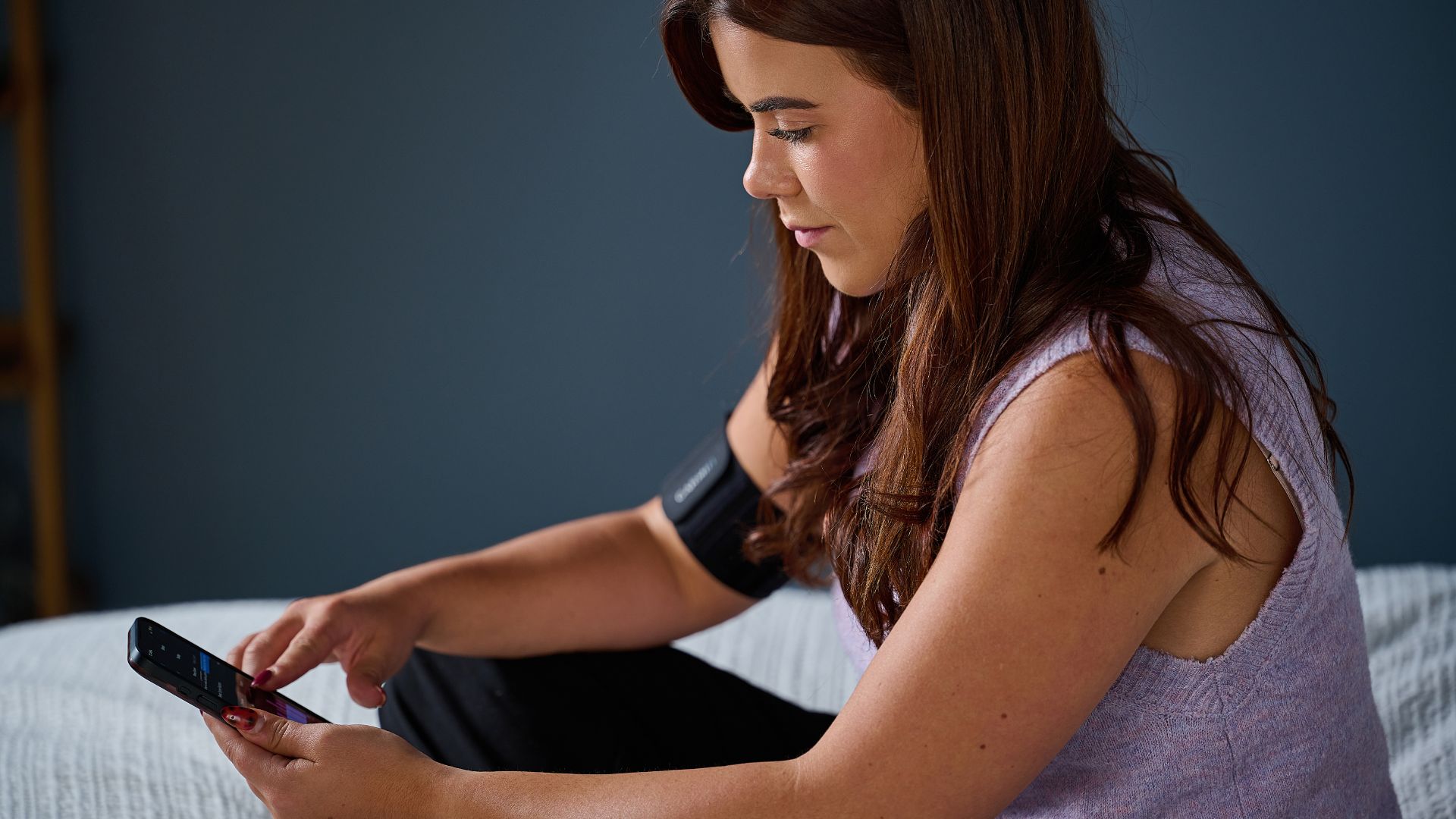
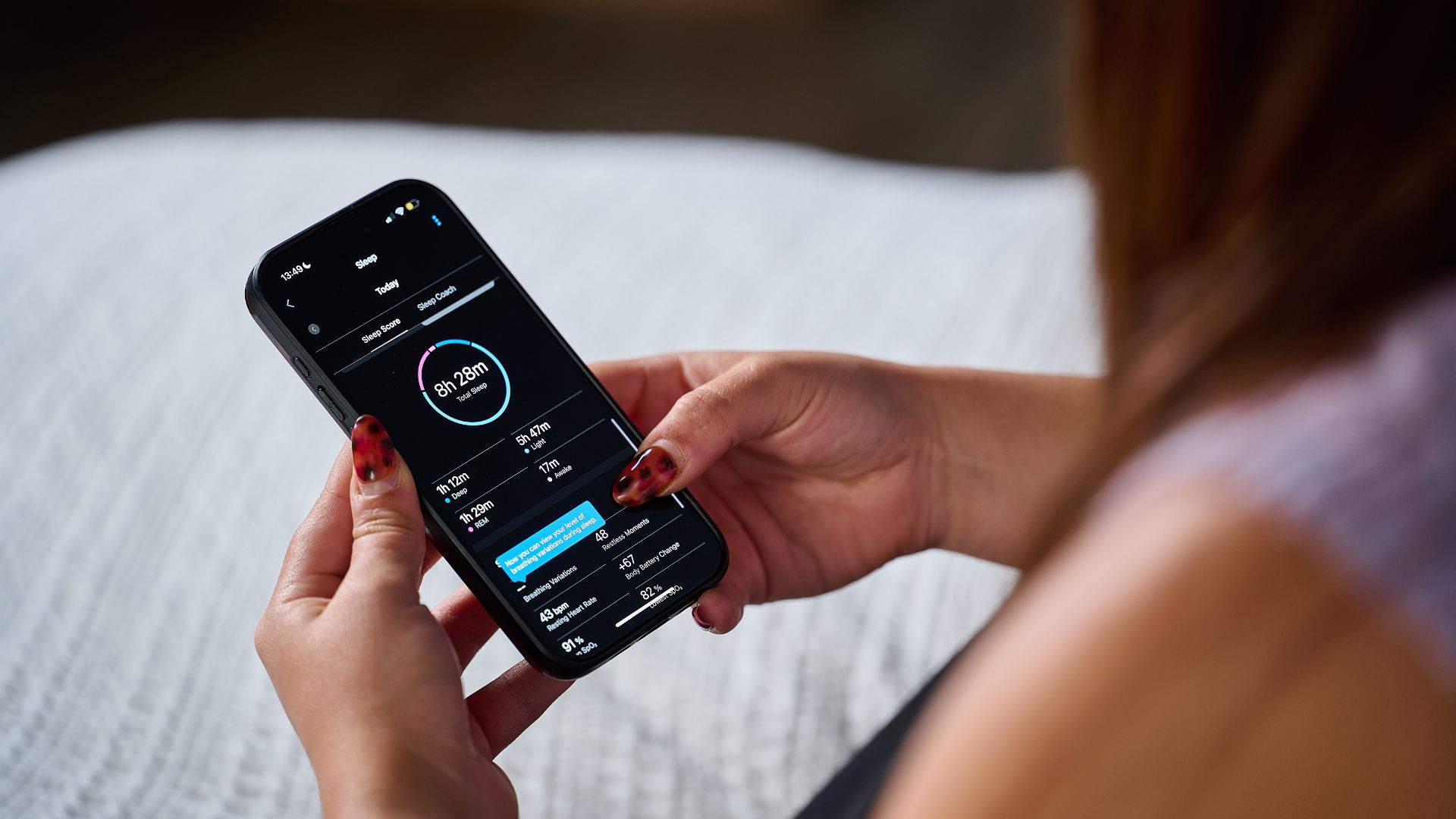
Specifications
Reasons to buy
Reasons to avoid
The Garmin Index Sleep Monitor is the first-of-its-kind from Garmin, and it's also fairly unique in the sleep tracker market as a whole: watches and rings abound, but armbands aren't so common. It’s one of the only consumer-grade upper arm sleep trackers available.
Worn on the upper arm, it's a super comfortable, screenless sleep tracker that precisely captures your night's sleep while your smart watch is free to charge overnight. The lack of screen also means no blue light or distraction while you sleep.
✅ You're a Garmin user but dislike wearing your watch in bed: With the Index Sleep Monitor you can leave your sweaty smart watch out of bed and still gather accurate sleep data that syncs with Garmin Connect.
✅ You want a smart alarm too: Wave goodbye to morning grogginess with the Garmin Index Sleep Monitor's vibration alarm feature.
❌ You want a daytime tracker: The Garmin Index Sleep Monitor is primarily a sleep tracker rather than an all-day activity and health tracker and best syncs up with daytime data from a separate Garmin watch.
The tracker sits in a fabric band (70% nylon, 30% spandex) that’s machine‑washable and comes in two sizes. It feels soft, very lightweight (the strap weighs 16‑20 g depending on size, with a module that weighs 14.5g) and comfortable enough to be largely unnoticed during the night. This is down to personal preference, but I found it more comfortable than sleeping with a smartwatch.
Its sensors include optical heart rate sensor, SpO₂ (blood oxygen saturation) sensor and an accelerometer for movement and sleep stages, plus it captures breathing rate, skin temperature variation, and analyzes sleep quality.
In terms of performance, the Garmin provides a detailed set of sleep metrics including total sleep time, sleep stages, awakenings, breathing variations, changes in skin temperature, average respiratory rate and a sleep score.
Overall, its data matched that from our top-rated sleep trackers, the Oura Ring 4 and the trusted under‑mattress tracker, Withings Sleep Analyzer, and also aligned with my sleep diary during my testing period, accurately capturing wake times, light and deep sleep, and disturbances.
It's most valuable to existing Garmin watch wearers, as the sleep data marries up with daytime activity tracking to produce a 'Body Battery' score and provide tailored recovery insights. Body Battery is one of Garmin’s most popular features, combining HRV, stress and sleep to show overall energy.
Additionally, it features a Smart Wake vibrating alarm that buzzes when it detects a lighter stage of sleep within your desired wake‑window (so you feel less groggy upon waking), with adjustable intensity and snooze options.
In terms of value and who should buy it: at $169.99 / £149.99 the Monitor is relatively expensive, especially considering it tracks only sleep. However, unlike many sleep trackers (like Oura and Whoop), Garmin does not require a subscription. All features are included with that purchase.
For those who already have a smartwatch with sleep‑monitoring capabilities, this could feel redundant. But for people who dislike wearing anything on their wrist while sleeping but still want robust sleep data, it offers a comfortable alternative. And with 5–7 days of battery life, you won’t need to charge it often.
- Read more: Garmin Index Sleep Monitor review
Best sleep tracking watch
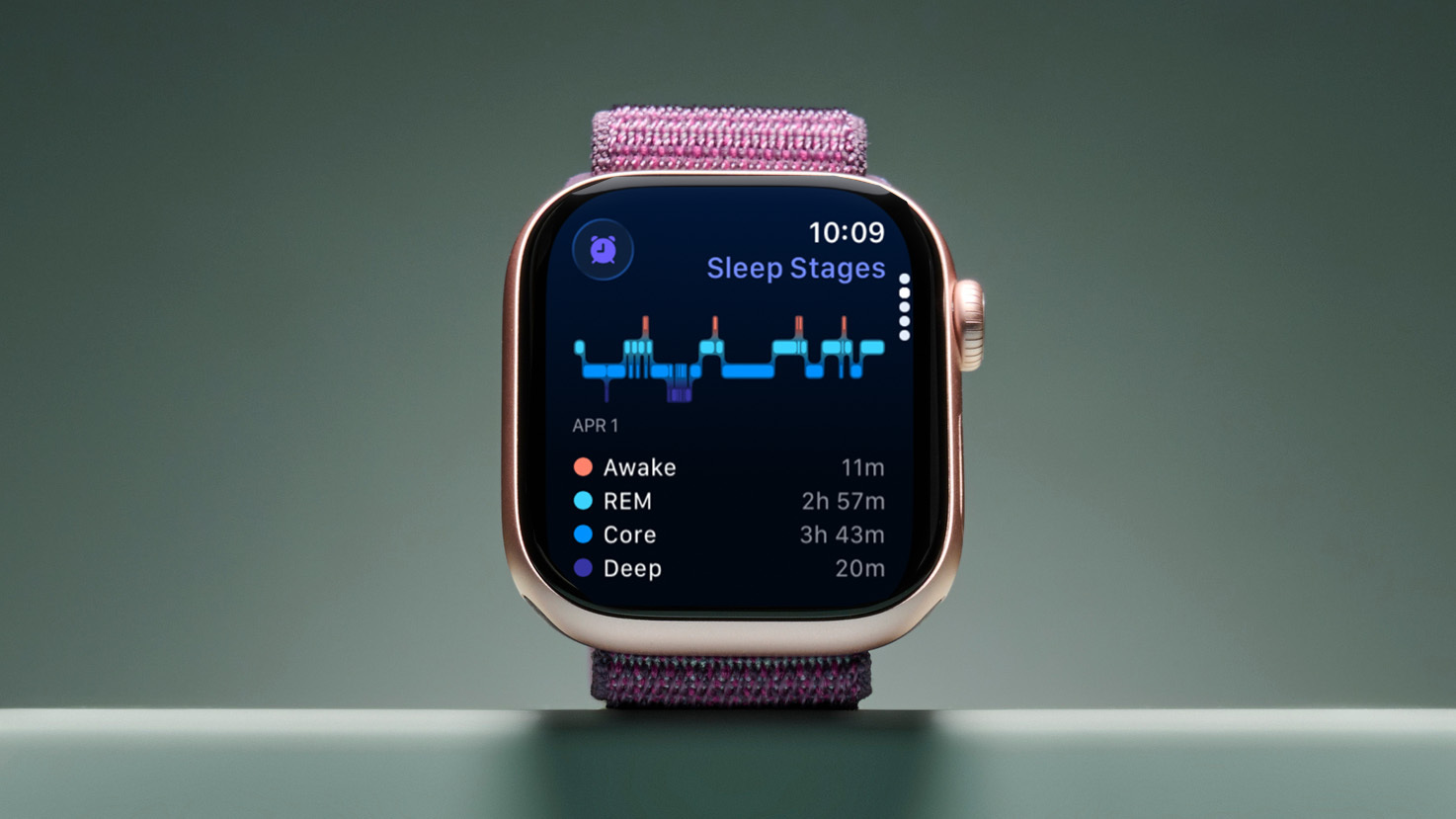
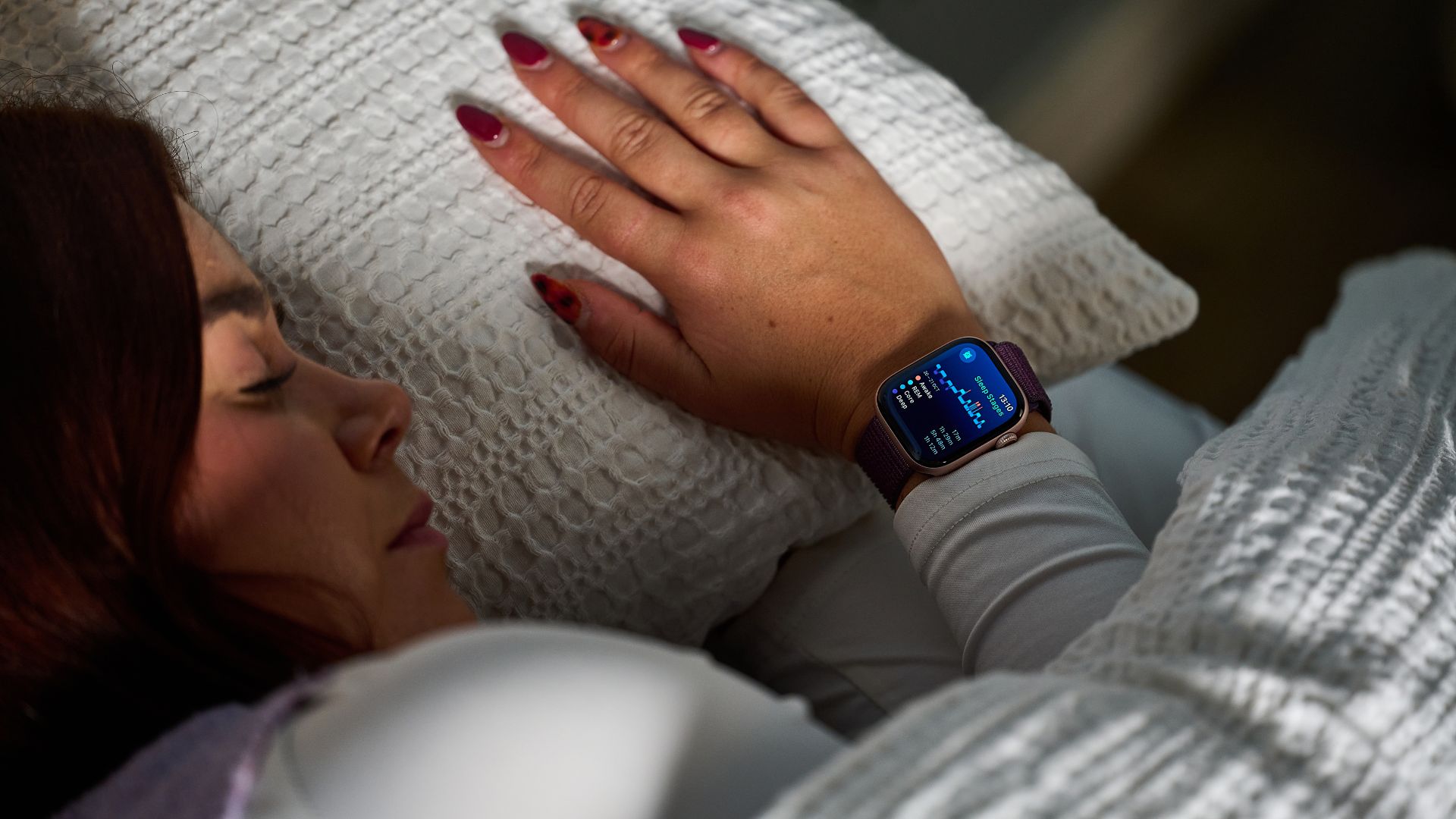
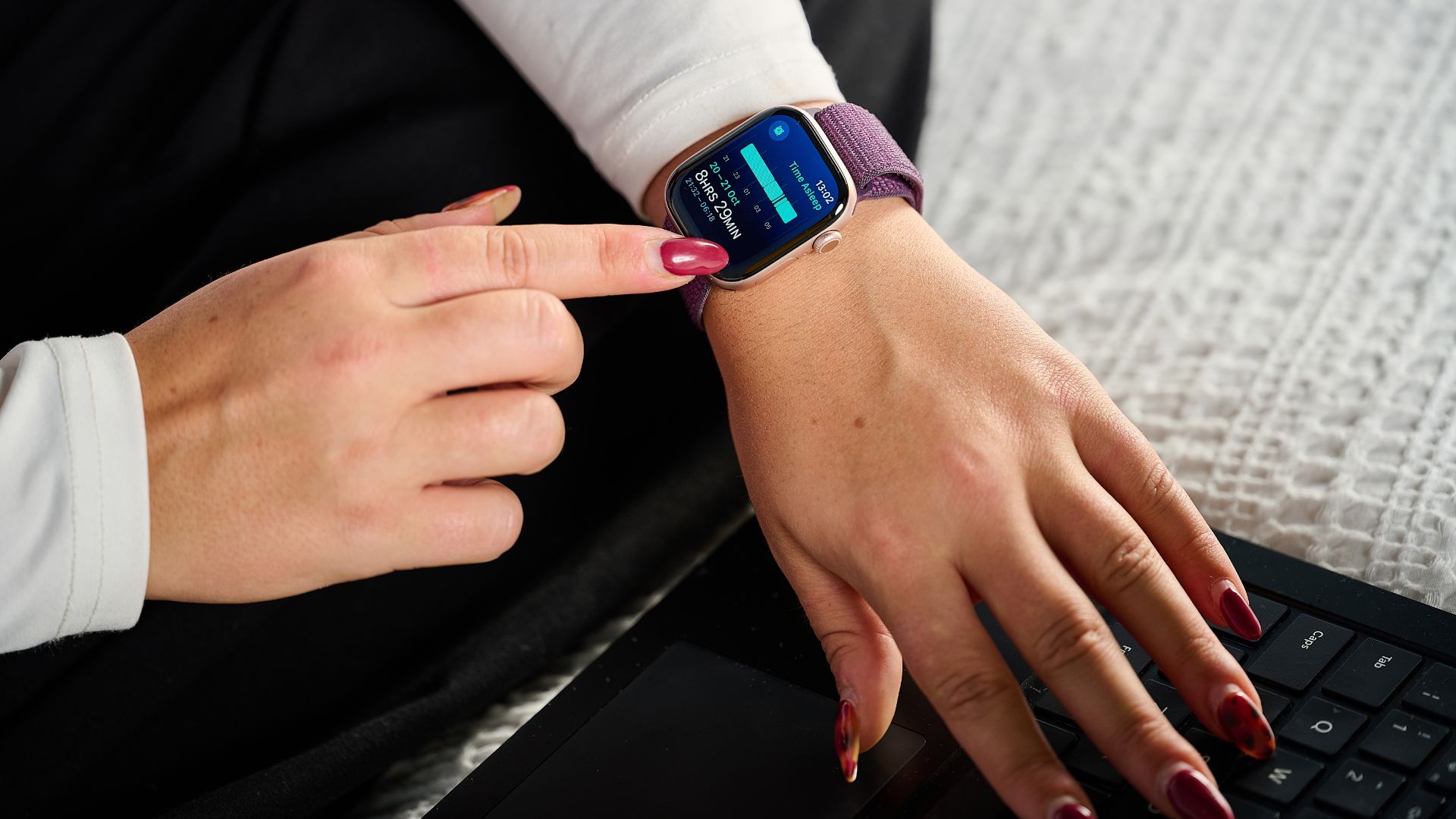
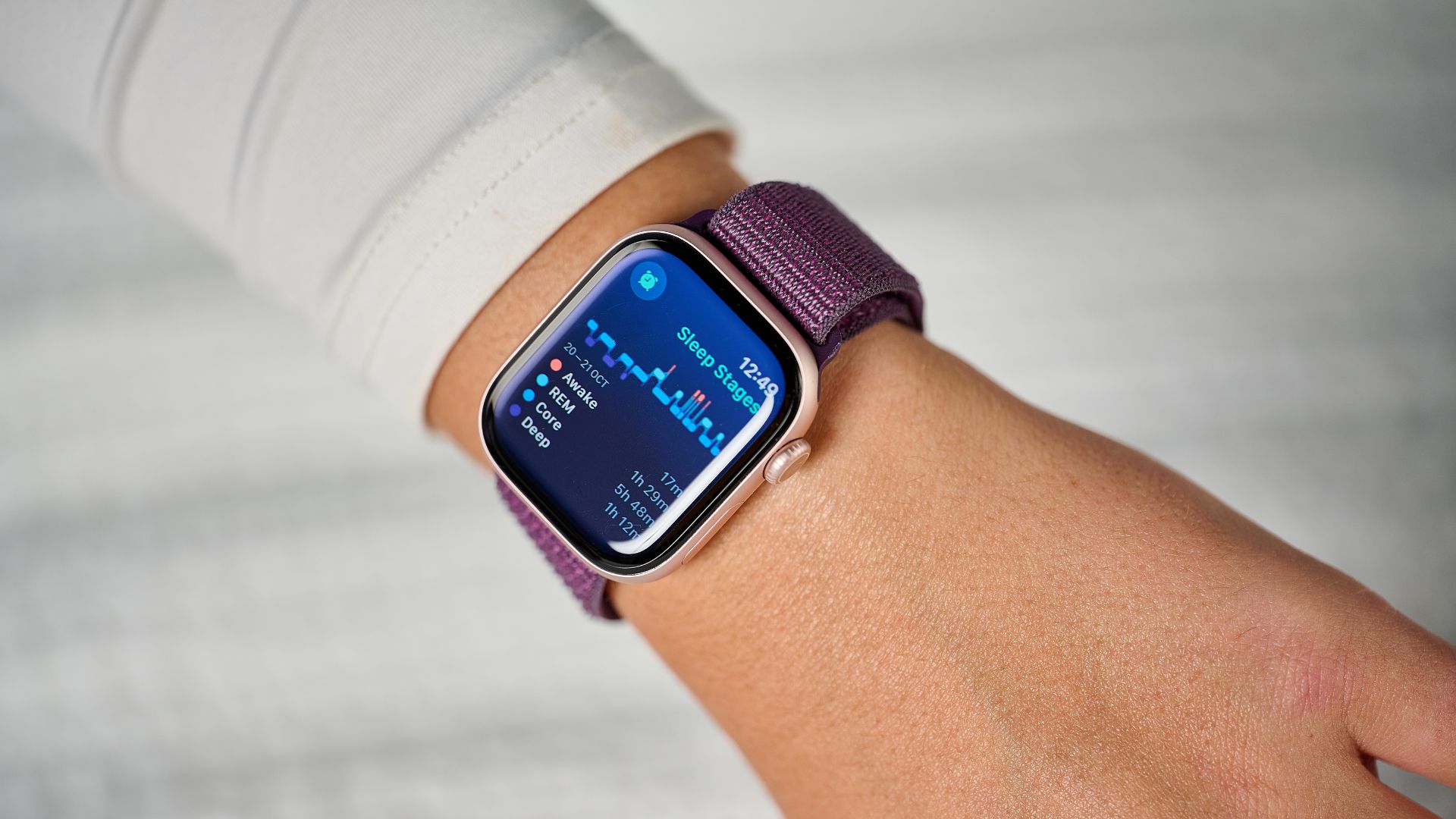
Specifications
Reasons to buy
Reasons to avoid
The Apple Watch 10 is one of the most popular smartwatches on the market, worn daily by many members of the Tom's Guide team for activity, heart rate and health tracking. And, packed with FDA-cleared sleep apnea notifications and now a new Sleep Score feature, we also rate it as a comprehensive sleep tracker.
✅ You're concerned about sleep apnea: The Apple Watch 10 is FDA-cleared to notify you of potential breathing irregularities linked to sleep apnea.
✅ You want an all-round, versatile smartwatch: When paired with your iPhone, you can track runs, count steps, monitor heart rate, take calls, and even use it as a walkie-talkie or mini photo viewer.
❌ You're an Android mobile user: The Apple Watch cannot connect to an Android mobile for full functionality.
❌ You want in-depth sleep metrics: Compared to dedicated trackers like Oura and Whoop, Apple's sleep insights are simpler, leaving out metrics like sleep latency and sleep efficiency.
Granted, it's no longer Apple's newest model since the Apple Watch 11 arrived in September, but its sleep tracking capabilities are first-rate thanks to software improvements rather than new hardware. Plus, the Apple Watch 11's arrival means you can now bag the series 10 at a sizeable discount (around $100/£100 off).
Before the Series 11 launched, there was one sleep feature the Apple Watch lacked that was holding it back from competing with the likes of Oura, Garmin and Whoop: a clear sleep-scoring system. But with the launch of the Apple Watch 11 came the introduction of Apple’s Sleep Score.
Based on how long you slept, how consistent your bedtime is and how often your sleep was interrupted, your watch rates the quality of your sleep out of 100 each morning. This update is software-based rather than exclusive to the new watch, so as long as your Watch 10 runs on watchOS 26, this feature is accessible.
Additionally, the Apple Watch can flag (but not diagnose – leave that to your doctor) sleep apnea. Apple will send you notifications if it identifies any abnormal breathing patterns associated with sleep apnea, providing helpful data you can share with your doctor.
With the Apple Watch, you can pre-set a bedtime schedule so your notifications are silenced during your sleep window and your alarm is set to wake you up gently in the morning (though, as sleep experts, we recommend a sunrise alarm clock in place of your iPhone alarm). Your watch then compares your actual sleep and time in bed with this schedule, and shows data on sleep stages and heart-rate trends.
All your sleep data lives in the Apple Health app on your iPhone, where you'll also find heaps of information on the importance of getting a good night's sleep, understanding sleep stages and recognising sleep apnea.
- Read more: Apple Watch Series 10 review
Best non-wearable sleep tracker
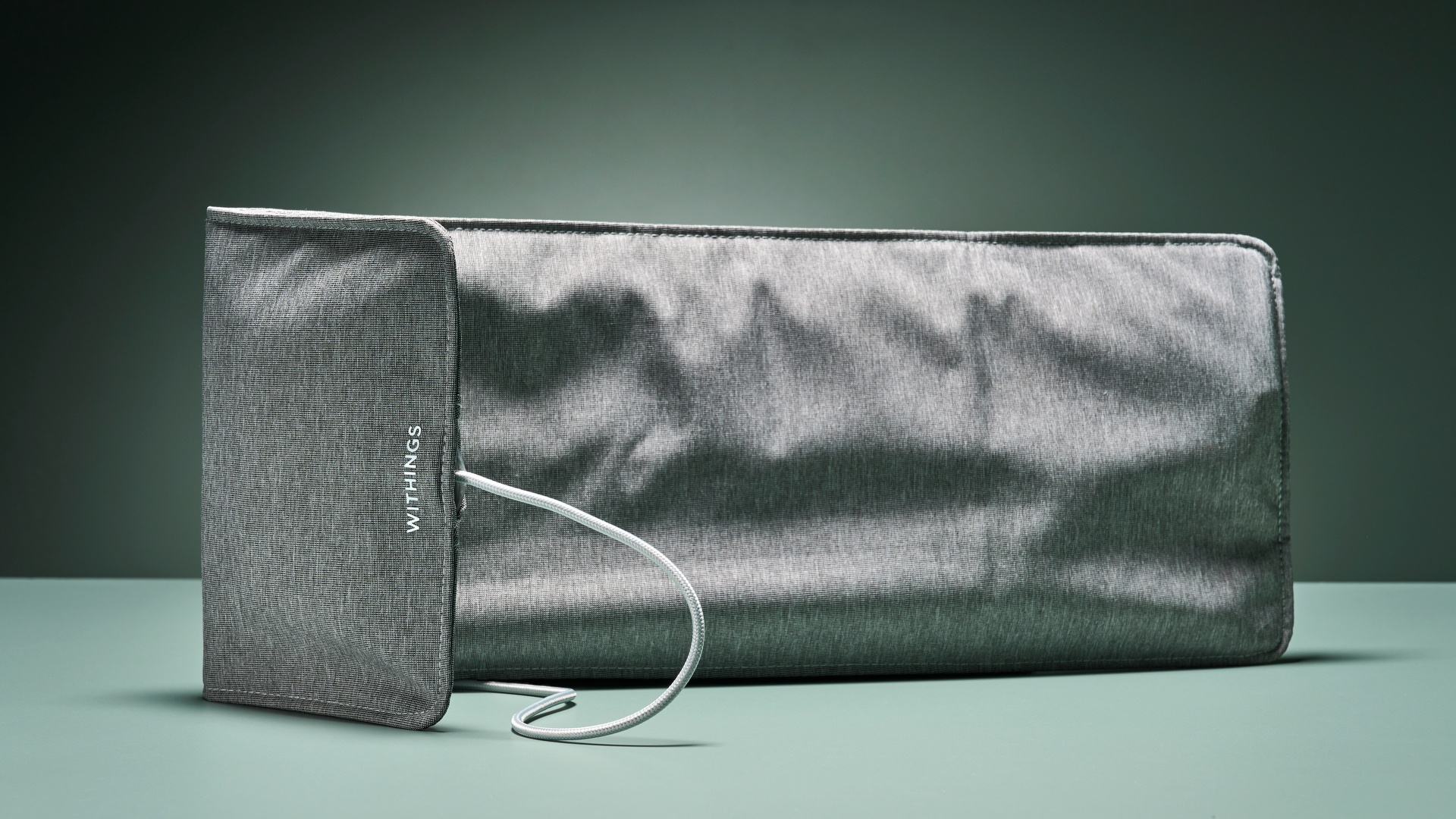
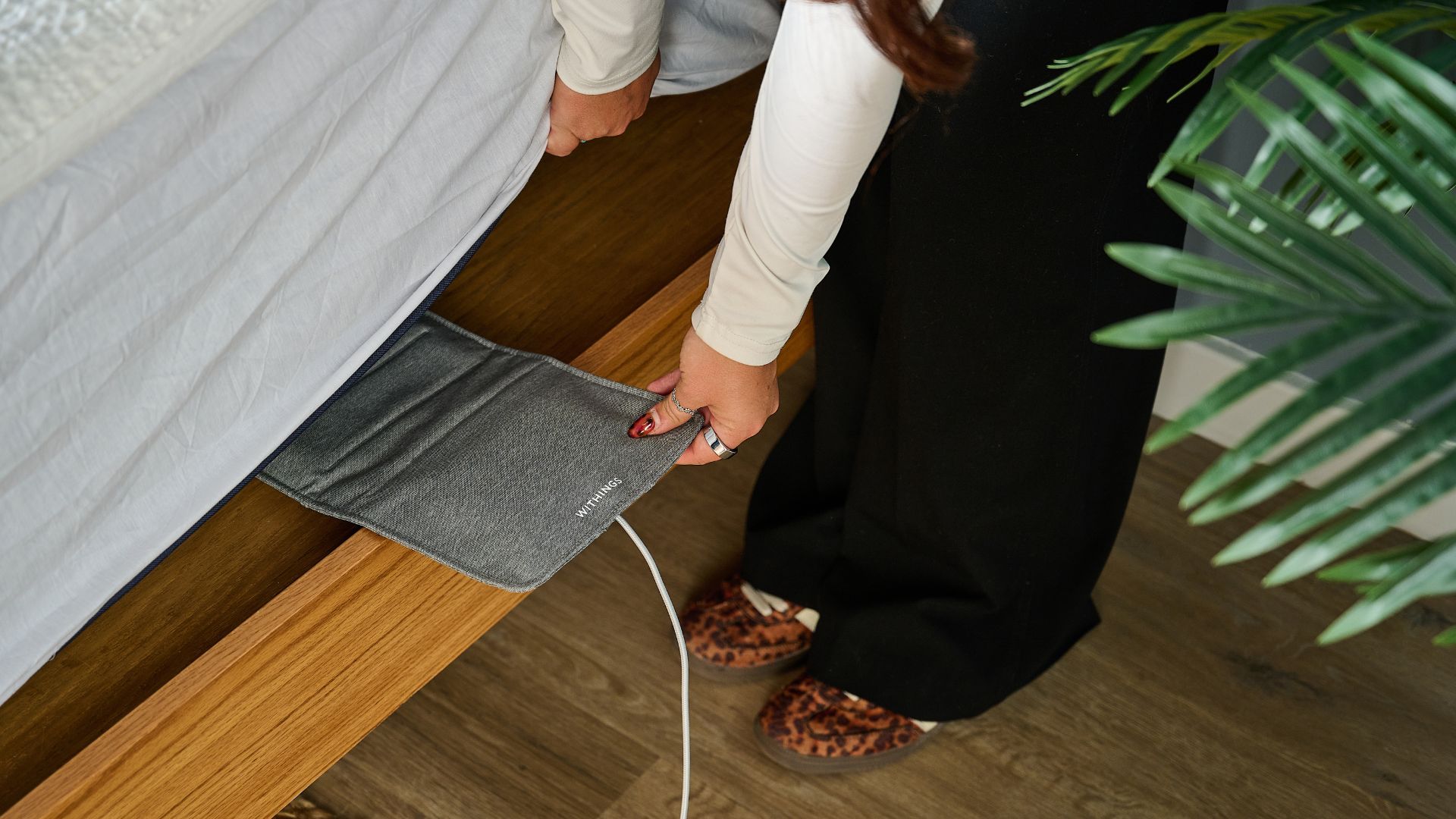
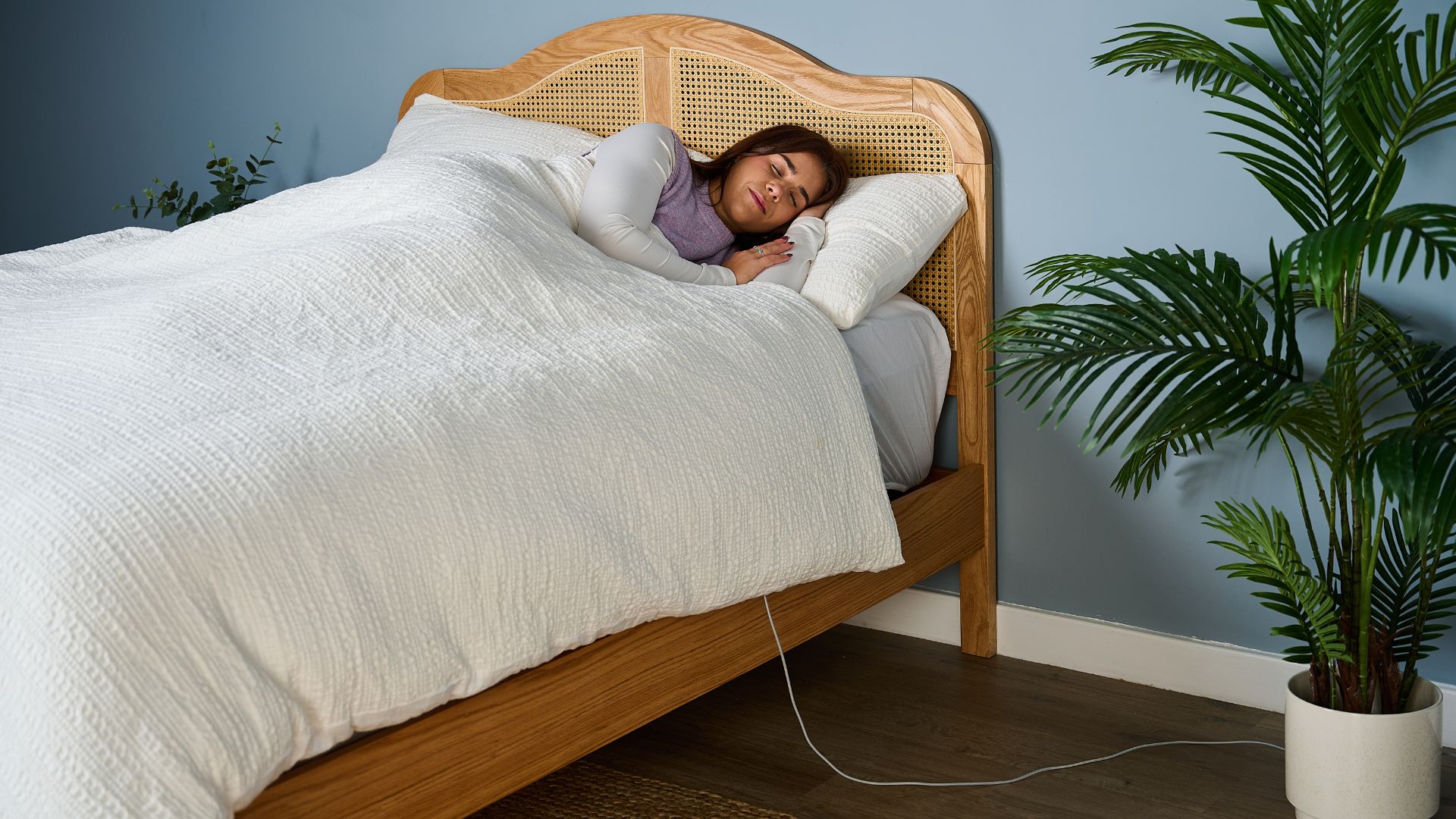
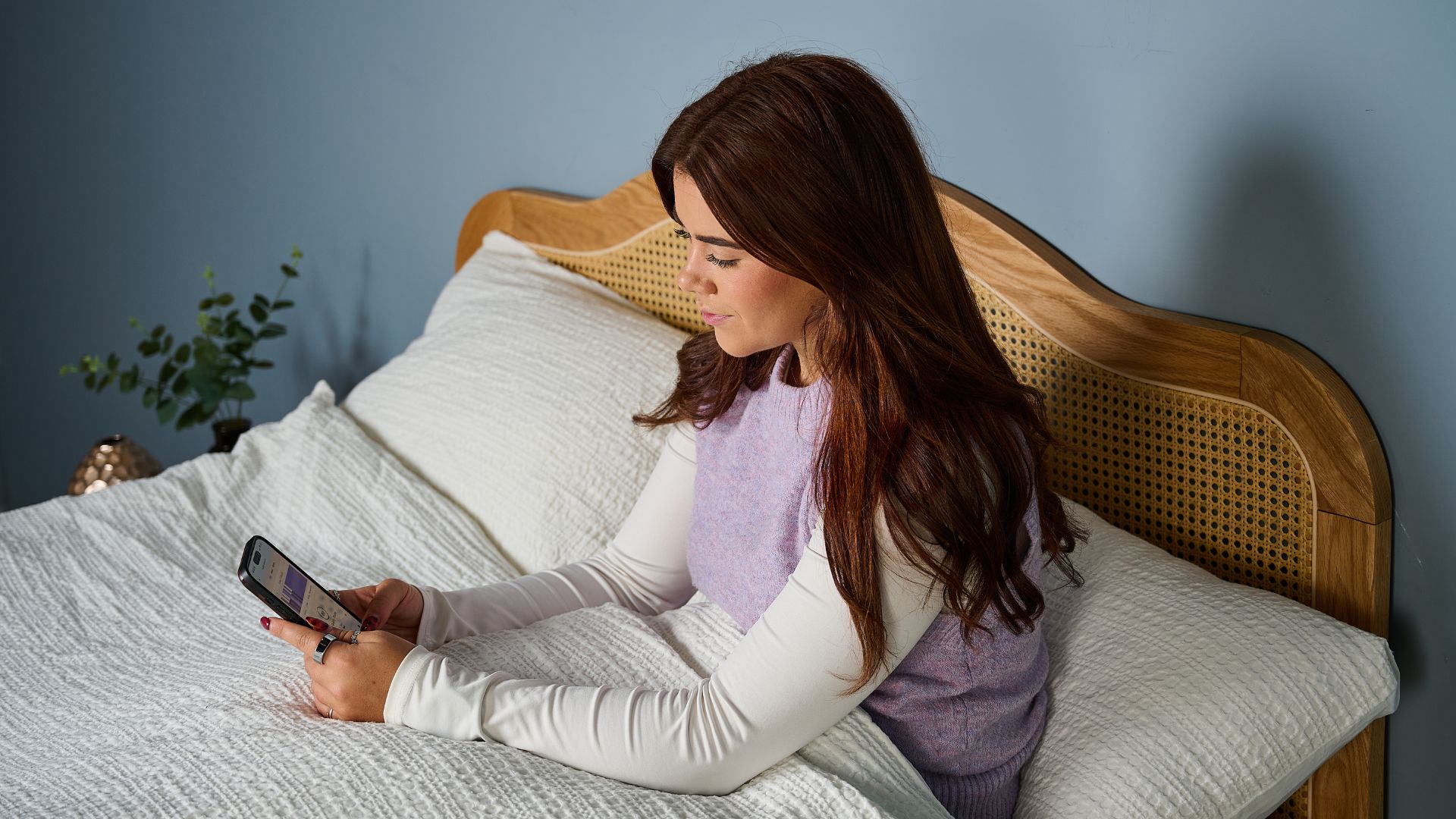
Specifications
Reasons to buy
Reasons to avoid
The Withings Sleep Analyzer is a discreet mat that slides under your mattress and uses built-in sensors to measure your sleep metrics and nighttime breathing habits.
✅ You don't like wearables in bed: No matter how comfortable wearables are, some people will find them irritating. In this case, this contact-free sleep tracking mat is for you.
✅ You're concerned about sleep apnea: You can take data captured by the Withings Sleep Analyzer to a medical professional who can help diagnose and treat the sleep disorder.
❌ You want a holistic health tracker: Unless you stay in bed all day (not recommended), the Withings can't keep track of your daytime biometrics. If you want a practical 24/7 health and sleep tracker, you'll need a wearable watch or ring.
Even with a mattress between your sleeping body and the mat, the Withings Sleep Analyzer's pneumatic pressure sensor, sound detection sensor and algorithms work together to track key elements of your sleep, such as your heart rate, breathing rate, sleep phases, snoring and sleep interruptions.
One thing to be aware of is that the mat can sometimes mistake you sitting in bed during the day as a nap, which messes up your sleep regularity scores. But overall, I felt the sleep timing and wake period metrics Withings gave me lined up accurately with my sleep diary.
My favorite aspect of the Withings sleep tracker is that it's low maintenance. You need a plug socket close to your bed but set up is simple and you never need to remember to charge it or put on any wearable before going to sleep. It also automatically starts and stops tracking when you lie down – no buttons or app interaction necessary.
The mat monitors all the usual metrics, including sleep duration, heart rate, nighttime movement and heart rate variability. Like the Apple watch, its sound sensor is also able to detect breathing abnormalities like sleep apnea (it's recognised as a medical-grade sleep apnea detection device in the EU and pending regulatory approval in the US). You can view and analyze your data in a daily report on the Withings app, which also provides you with a sleep score based on your metrics.
Although the mattress pad can't keep track of your daytime steps, heart rate and all those juicy activity metrics too, the Withings App pairs up with Apple Health or Samsung Health so you can keep track of all your health and recovery metrics in one place if you wish.
- Read more: Withings Sleep Analyzer review
Best sleep tracker for active lifestyles
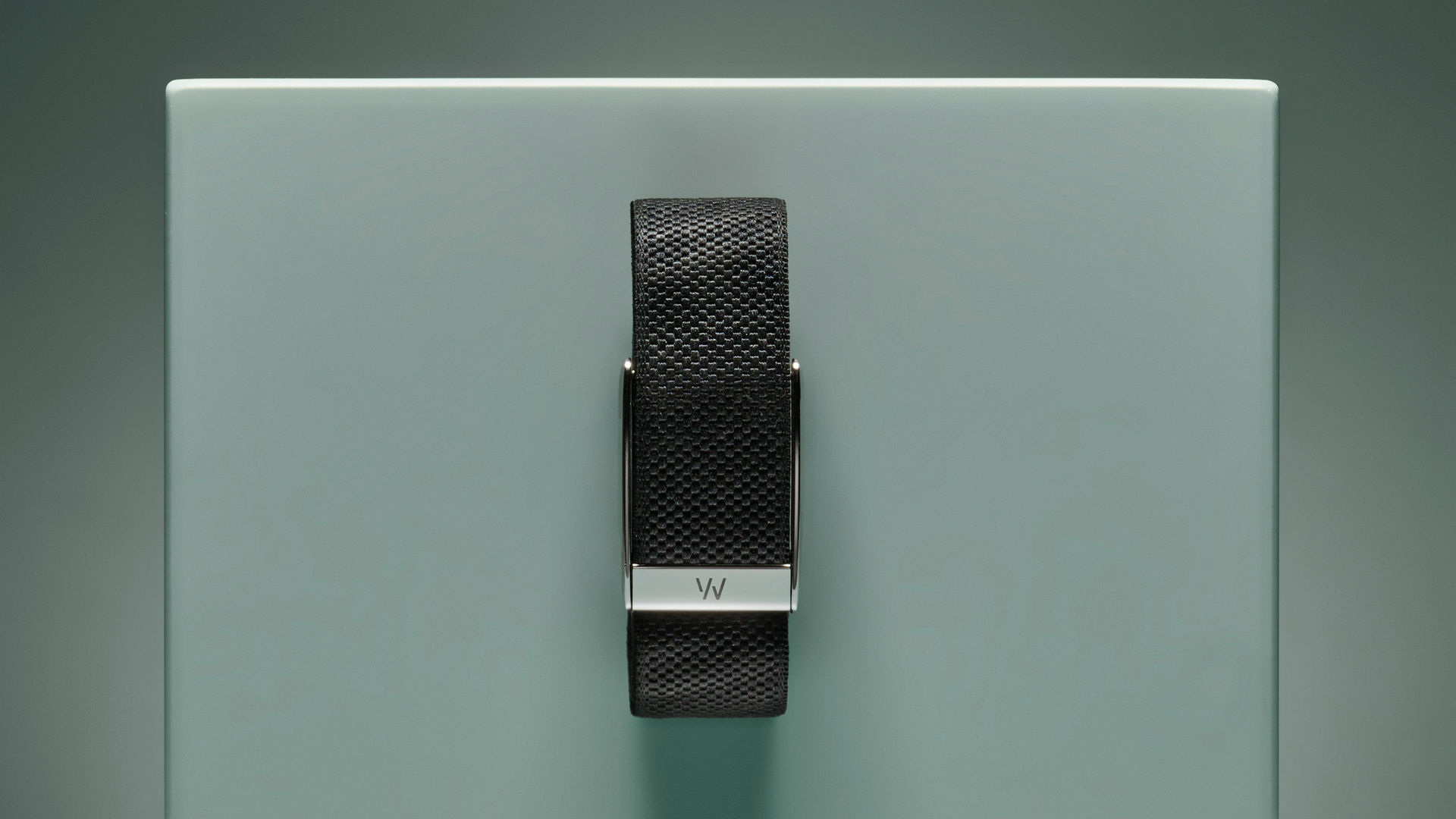
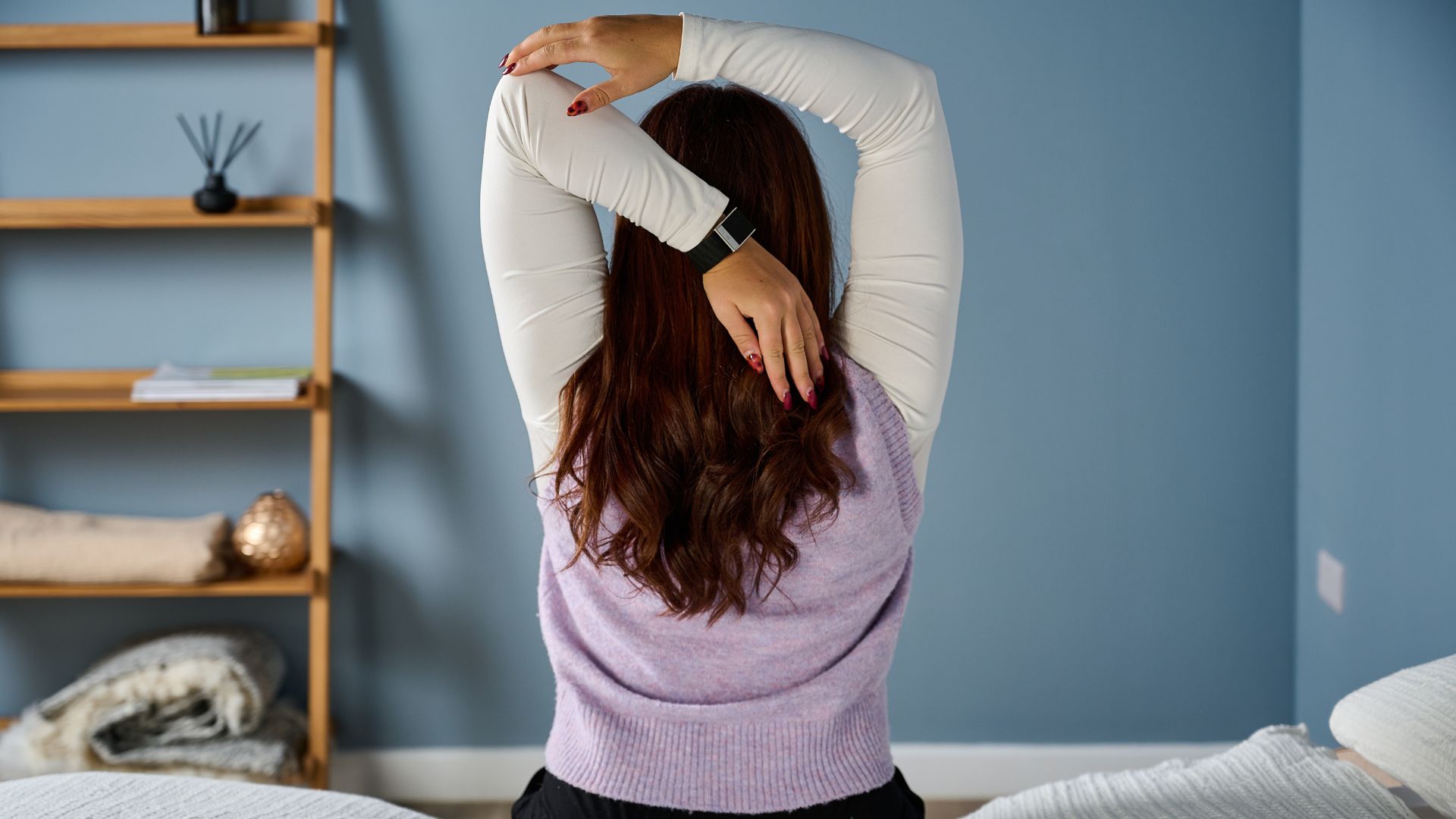
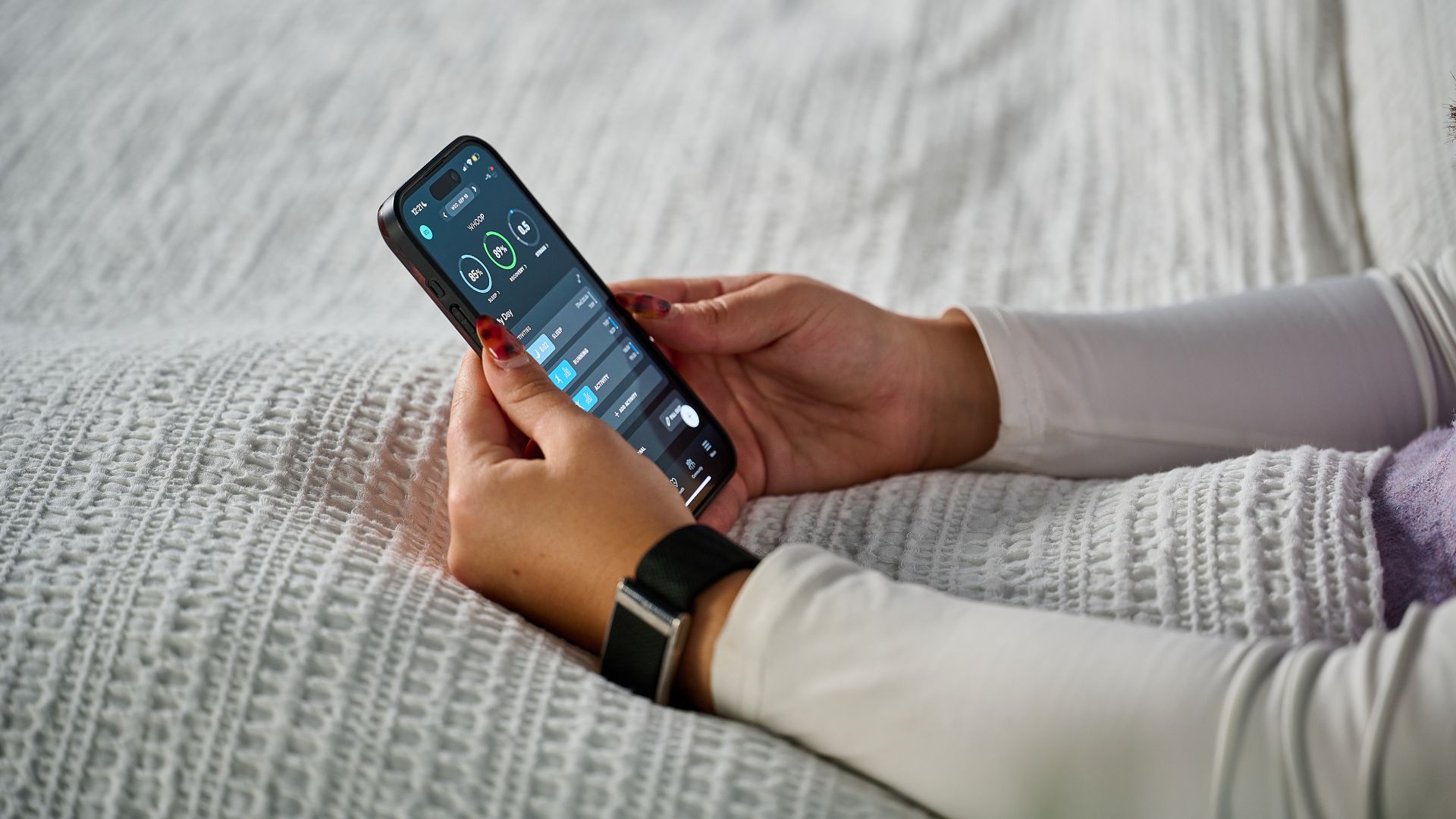
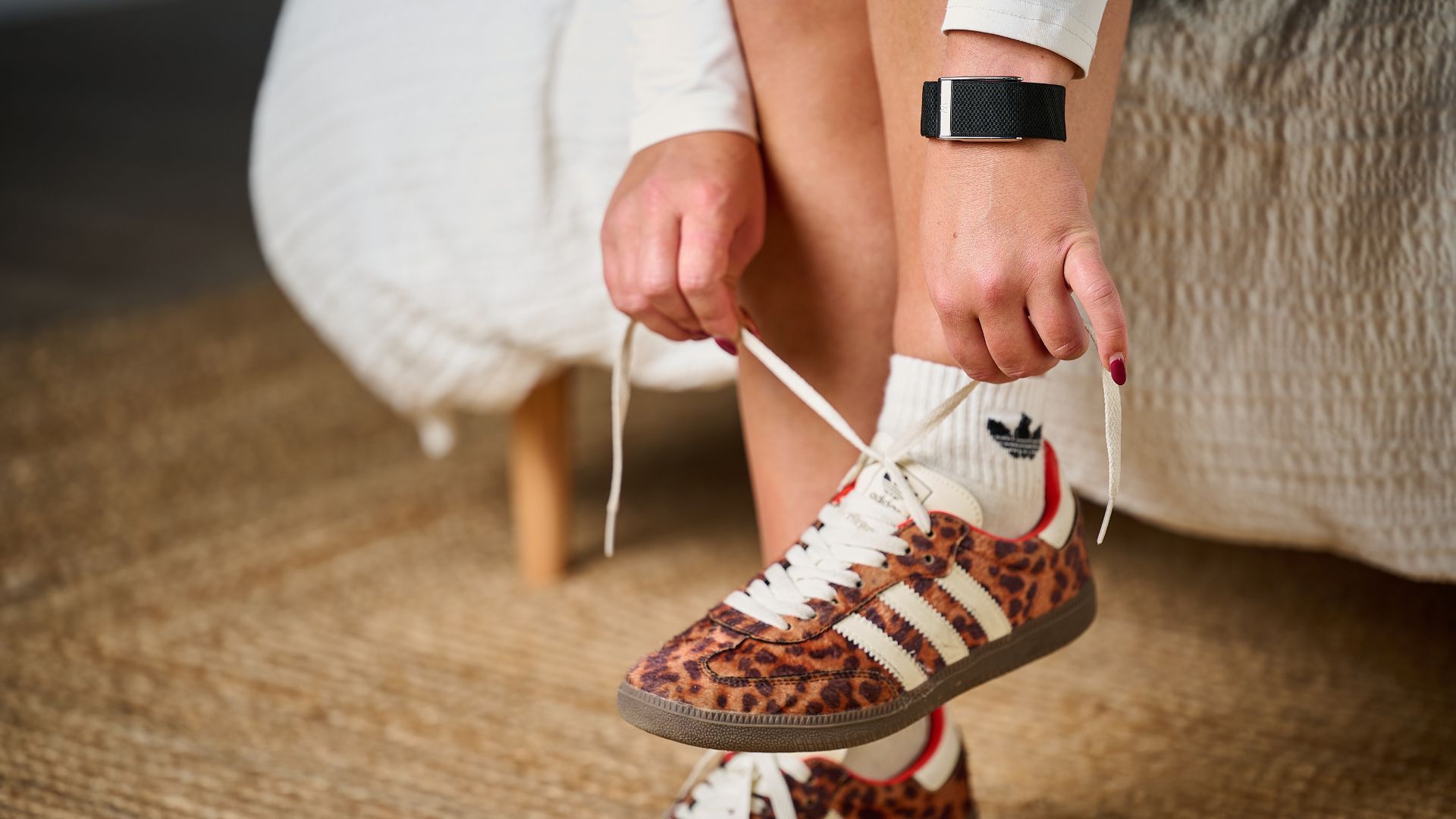
Specifications
Reasons to buy
Reasons to avoid
Released in May 2025, the Whoop MG (and its sister model, the Whoop 5.0) is one of the newest and most advanced sleep and recovery trackers on the market. It tracks your sleep, strain and recovery, as well as a host of additional health metrics. From a sleep perspective, it helps you understand exactly how much sleep you need each night to optimize your recovery and performance.
✅ You're a fitness enthusiast: Whoop is designed to be a 24/7 wearable fitness and sleep coach for active individuals looking to optimize their physical recovery and performance.
✅ You want a screen-free watch: If you prefer to wear your sleep tracker on your wrist rather than your upper-arm or finger, but want to keep distracting screens out of bed, the faceless Whoop band is a great option.
❌ You want a one-off payment: Whoop operates a unique pricing system where you pay a subscription fee (starting from $199 / £169 per year) rather than an upfront cost for the device.
❌ You're not interested in in-depth recovery metrics: Whoop is best suited to active individuals and athletes, as it focuses on how sleep impacts your training and performance.
Compared to the previous generation Whoop 4.0, the Whoop 5.0 and Whoop MG come with upgraded sensors that capture data 26 times per second for improved accuracy.
It should be pointed out that the Whoop MG (which stands for medical grade) tracks a whole range of health data and even provides ECG readings. In terms of sleep metrics, it tracks total time in bed, total hours of sleep, time spent in REM and deep sleep, wake events, sleep efficiency, sleep latency, respiratory rate and sleep debt, and delivers detailed sleep reports. It also tracks HRV and overnight skin temperature trends, which are critical for recovery insights.
Each sleep report shows how much sleep you actually got compared to how much your body needed, as well as sleep consistency, sleep efficiency and sleep stress. Evaluating these metrics together, Whoop delivers an overall Sleep Performance score for each night.
This data is presented in color-coded, interactive graphs in the Whoop app so you can see exactly which points in the night were spent in each sleep stage and track sleep stress, sleep consistency and time in bed. These graphs also chart your respiratory rate and HRV trends over time.
Whoop also looks at your recent sleep, strain, naps, and any sleep debt it has calculated to determine the amount of sleep you need for optimal recovery. This is displayed in a handy bar graph comparing sleep needed vs sleep achieved.
To help you get that sleep, Whoop recommends an optimal bedtime, wake time and sleep duration. You can then use the Wake Alarm function that can wake you at a set time, when you've met your sleep goal or at the ideal moment for recovery.
Like the Oura, Whoop features an AI generated sleep coach in the app. This is a live chat that breaks down previous night’s sleep performance and gives you personalized, actionable tips to improve or maintain your sleep quality.
Battery life is a standout feature and lasts up to two weeks between charges. And you don't miss out on sleep data when it does need charging, as Whoop has designed a wireless charger you can slip on the device when it's still on your wrist.
Pricing is a little different with Whoop. Instead of paying for the device upfront, you pay an annual subscription fee. This subscription is split into three pricing tiers ('One' at $199/£169 per year, 'Peak' at $239/£229 per year, both of which come with the Whoop 5.0. While 'Life' costs $359/£349 per year and comes with the Whoop MG). Obviously, the more you pay, the better features you get.
Ultimately, Whoop is best suited to professional and amateur athletes who want to understand more about their training intensity and recovery. Part of the brand's USP is a 'strain' score which measures your body's total physiological exertion, particularly cardiovascular and muscular load, on a non-linear scale from 0 to 21. This score gives an indication of how much recovery (sleep) you need.
If you want a simple tracker that keeps tabs on how well you sleep at night rather than how you perform by day too, you're better off choosing the Oura, Withings or Garmin above.
- Read more: Whoop 5.0 review
Also tested
These sleep trackers are also popular and performed well in our tests. They didn’t quite make the top tier, but if none of the main picks above feel right for you, these are still good alternatives.
Samsung Galaxy Smart Ring: $399/£399 at Samsung
Our sleep features editor Lauren has tested the Samsung Galaxy smart ring and rated it as one of her top sleep products of 2025; praising the level of detail in the sleep data analysis and crediting it for helping her maintain a steady sleep schedule. Although the results were largely reliable, the Samsung Galaxy ring falls short in being an Android-only smart ring, excluding a lot of users, whereas the trackers above are OS-agnostic.
Oura Ring 3: from $299/£299 from $206/£199 at Amazon
The previous generation Oura Ring 3 is an efficient sleep tracker with similar features to our top pick (minus upgraded sensors). It comes in two styles, both of which are currently discounted while stocks last at Amazon (it's sold out at Oura). The Heritage is now $207/£199 (was $299/£299) while the Horizon is reduced to $206/£229 (was $349/£349), though there are limited colors and sizes available. You'll also need to pay the $5.99/£5.99 a month subscription fee.
Sleep trackers we're testing right now
Our team is constantly testing new sleep tech to make sure we only recommend the best devices for tracking your rest. Here's are some of the sleep trackers we're currently testing:
Apple Watch 11: We're currently testing how well the new flagship smart watch tracks users' sleep compared to the Series 10 and whether it can improve sleep hygiene.
Beautyrest Sleeptracker Monitor: A budget alternative to the Withings Sleep Analyzer, we're seeing if this $69 under-the-mattress tracker is a bargain or a flop.
How we test the best sleep tracker
Sleep trackers come in many forms, from wrist-worn watches to smart rings, headbands, armbands, bedside monitors and under-mattress mats. Because of this variety, we use a consistent testing methodology so we can compare each device fairly. Here's how our testing works.
We test every sleep tracker over a two-week period and use the Withings Sleep Analyzer as a control device to benchmark accuracy and effectiveness.
During the first week, we gather baseline data from both the sleep tracker being tested and the Withings, allowing us to directly compare key sleep metrics such as sleep stages, total duration, HRV (heart rate variability) and sleep onset latency (how long it takes to fall asleep).
Over the second week, we focus on applying any recommendations or features offered by the tracker to improve sleep. This helps us assess whether the device provides actionable insights that genuinely enhance sleep quality.
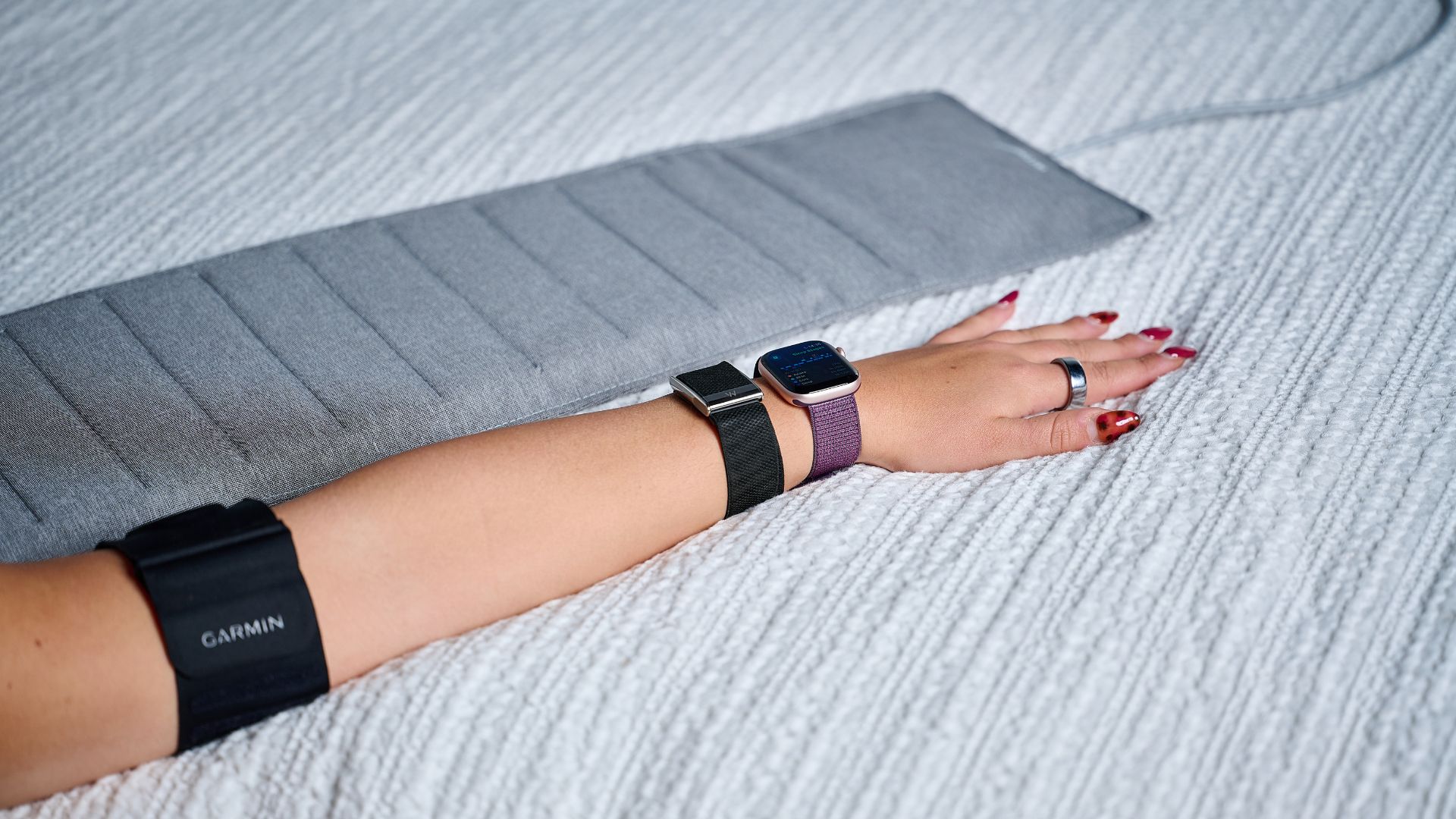
To ensure a well-rounded evaluation, we also maintain a sleep diary alongside digital tracking. This diary records bedtime and wake-up times, any night-time awakenings, and daytime factors such as illness or menstruation that may affect sleep.
By cross-referencing diary entries with data from the sleep tracker, we aim to identify discrepancies or confirm trends in the data. This dual approach— objective data plus subjective context — help us assess the reliability of each tracker and determine whether it offers meaningful insights or improvements to the user’s sleep hygiene.
Ultimately, the goal of this testing is to answer several key questions: What data does the tracker collect, and how accurately? What technology or sensors does it use? Most importantly, who is the tracker best suited for, and does it actually help users sleep better? By testing each device thoroughly over a consistent period and with a structured methodology, we can offer clear, evidence-based recommendations in this buyer’s guide.
Frequently asked questions
Why buy a sleep tracker?
Tracking your sleep can have multiple benefits, from helping you maintain a consistent sleep schedule to teaching you more about how your habits impact your sleep quality.
Sleep trackers collect valuable data that helps you see how things like caffeine, screen time or being inactive during the day may be disrupting your sleep. With that information, you can make positive changes, like establishing consistent sleep and wake-up times, getting regular exercise, managing stress or cutting down screen time.
Sleep trackers can also help you understand how well you're actually sleeping and what poor sleep might be affecting, like your mood, focus and energy levels. In some cases, they can even flag sleep conditions.
For example, you may think you're sleep welling but still wake up feeling groggy and tired. This could be a sign you're not getting enough deep sleep or you may have a sleep disorder like sleep apnea. Some sleep trackers, like the Withings Sleep Analyzer, can detect abnormal breathing patterns, though it is important to discuss any concerning data with a doctor who can make a proper diagnosis.
Are sleep trackers accurate?
Sleep trackers aren't as accurate as a lab-based polysomnography sleep study, but they're the most reliable way to monitor your sleep at home.
Researchers at the University of Massachusetts have taken several commercial sleep tracking devices to the lab to evaluate their accuracy against research-grade actigraphy and polysomnography. Overall, their study found that consumer devices were similarly accurate to research-grade actigraphy when estimating total sleep time.
Another review of studies looking at commercially available wearable devices used in sleep studies noted that "as technology improves, it seems that wearables likely provide sleep information on par with actigraphy."
This supports a growing body of literature that suggests consumer sleep-tracking devices can be a convenient, cost-effective and surprisingly accurate tool for measuring sleep.
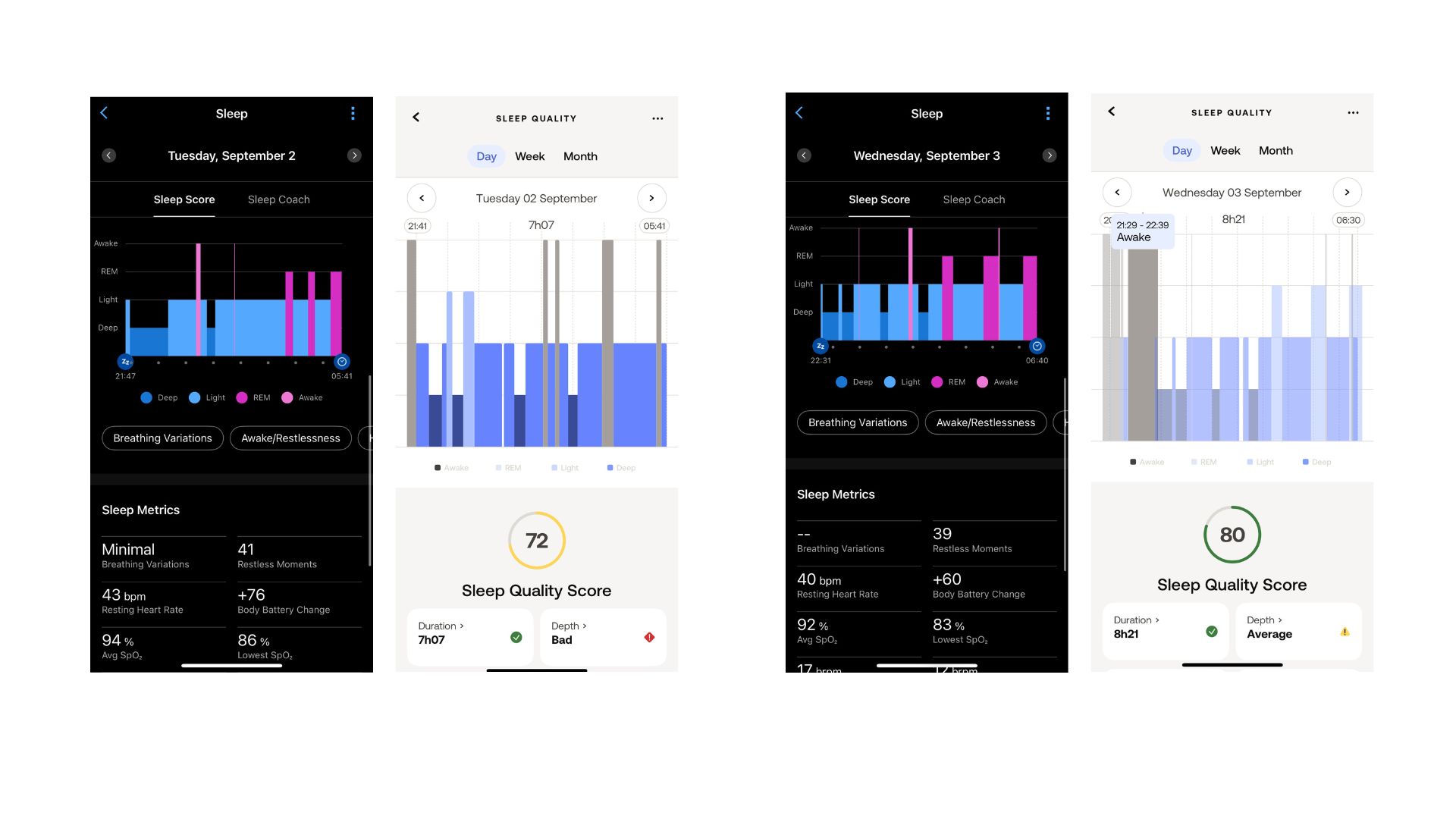
When we test sleep trackers at Tom's Guide, we compare the data from each device against each other, along with our own sleep diary. This helps us assess how accurate each tracker really is.
Results can differ from tracker to tracker, most differences come down to just a few minutes of sleep timing. Our top four recommendations here were the most accurate and reliable in our tests.
Can tracking your sleep really help you sleep better?
Wearing a sleep tracker won't magically improve your sleep (if only), but used consistently, it can help you improve your sleep habits.
Many software platforms attached to the sleep trackers feature AI-driven sleep coaching. This means you can find actionable sleep hygiene tips alongside your sleep reports. Because the advice is based on your personal sleep patterns, it's usually much more tailored and useful than generic tips you'd find online.
Some sleep trackers go even further. Oura and Whoop have a live chat feature that produces actionable sleep tips based off your real-time daily sleep metrics and habits. They break down how you slept last night and tell you what to do tonight to improve your sleep quality.
Get instant access to breaking news, the hottest reviews, great deals and helpful tips.

Eve is a sleep tech product tester and writer at Tom's Guide, covering everything from smart beds and sleep trackers, to sleep earbuds and sunrise alarm clocks. Eve is a PPA-accredited journalist with an MA in Magazine Journalism, and has four years’ experience writing features and news. In her role as Sleep Tech Product Tester and Writer for Tom's Guide, Eve is constantly trying out and reviewing the latest sleep products from brands such as Apple, Garmin, Whoop, Hatch, Sleep Number, Eight Sleep, and Oura. A fitness enthusiast who completed the London Marathon earlier this year, Eve loves exploring the relationship between good sleep, overall health, and physical performance, and how great sleep tech can make that relationship even better.
 Club Benefits
Club Benefits










